




(Founded
Margie Gutnik
President
Annette van de Kamp-Wright
Editor
Richard Busse
Creative Director
Howard Kutler
Advertising Executive
Lori Kooper-Schwarz
Assistant Editor
Gabby Blair
Staff Writer
Sam Kricsfeld
Digital support
Mary Bachteler

Accounting
Jewish Press Board
Margie Gutnik, President; Abigail Kutler, Ex-Officio; Seth Feldman; David Finkelstein; Ally Freeman; Mary Sue Grossman; Natasha Kraft; Chuck Lucoff; David Phillips; and Joseph Pinson.
The mission of the Jewish Federation of Omaha is to build and sustain a strong and vibrant Omaha Jewish Community and to support Jews in Israel and around the world. Agencies of the JFO are: Institute for Holocaust Education, Jewish Community Relations Council, Jewish Community Center, Jewish Social Services and the Jewish Press Guidelines and highlights of the Jewish Press, including front page stories and announcements, can be found online at: www.jewishomaha.org; click on ‘Jewish Press.’ Editorials express the view of the writer and are not necessarily representative of the views of the Jewish Press Board of Directors, the Jewish Federation of Omaha Board of Directors, or the Omaha Jewish community as a whole. The Jewish Press reserves the right to edit signed letters and articles for space and content. The Jewish Press is not responsible for the Kashrut of any product or establishment.
Editorial
The Jewish Press is an agency of the Jewish Federation of Omaha. Deadline for copy, ads and photos is: Thursday, 9 a.m., eight days prior to publication.
E-mail editorial material and photos to: avandekamp@jewishomaha.org ; send ads (in TIF or PDF format) to: rbusse@jewishomaha.org
Letters to the Editor Guidelines
The Jewish Press welcomes Letters to the Editor. They may be sent via regular mail to: The Jewish Press, 333 So. 132 St., Omaha, NE 68154; via fax: 1.402.334.5422 or via e-mail to the Editor at: avandekamp@jewishomaha.org.
Letters should be no longer than 250 words and must be single-spaced typed, not hand-written. Published letters should be confined to opinions and comments on articles or events.
News items should not be submitted and printed as a “Letter to the Editor.”
The Editor may edit letters for content and space restrictions. Letters may be published without giving an opposing view. Information shall be verified before printing. All letters must be signed by the writer. The Jewish Press will not publish letters that appear to be part of an organized campaign, nor letters copied from the Internet. No letters should be published from candidates running for office, but others may write on their behalf.
Letters of thanks should be confined to commending an institution for a program, project or event, rather than personally thanking paid staff, unless the writer chooses to turn the “Letter to the Editor” into a paid personal ad or a news article about the event, project or program which the professional staff supervised. For information, contact Annette van de Kamp-Wright, Jewish Press Editor, 402.334.6450.
Postal
The Jewish Press (USPS 275620) is published weekly (except for the first week of January and July) on Friday for $40 per calendar year U.S.; $80 foreign, by the Jewish Federation of Omaha. Phone: 402.334.6448; FAX: 402.334.5422.
Periodical postage paid at Omaha, NE. POSTMASTER: Send address changes to: The Jewish Press, 333 So. 132 St., Omaha, NE 68154-2198 or email to: jpress@jewishomaha.org
As in every other year, I’m writing this message ahead of time, long before any of us have finished cleaning our kitchens (full disclosure: I haven’t started yet) while here in the office we’re still in the middle of pre-production anxiety. Every year we wonder: will we get this done? Will we sell enough ads? Will people like it? Yet, somehow, when the date arrives, the special edition makes its way to you.
“Getting things done” could have been the theme of this issue. The women featured here know all about doing the work, often without expecting anything in return. They simply do it, because it needs to be done, because it helps our community thrive and we all benefit in the process.
When writing about the women in this issue, we paid attention to leadership and what it means to the rest of us. Taking the helm for any board, organization or project doesn’t just mean doing the actual work, it also means being a role model and inspiring others. None of us can do what we do without having some very strong shoulders to stand on.
As always, the people featured here are a small segment of the list we could have included- there is never enough time or room, and there is always another edition—so if you find us lacking and feel someone should have been included, please let us know for next time. This community has too many inspiring people and stories to squeeze in one issue—and what a luxury problem that is.
Having said that, this topic is important and interesting enough to keep going beyond the Passover issue. Over the next few months, we’re continuing the ‘Women of Valor’ stories as a recurring series. If there is someone you’d like to nominate, feel free to send us an email!
Thanks go, first of all, to the Jewish Press Board and Staff. It’s been an interesting few years, to say the least, and the fact that you’re all still here makes me so happy. Both creative director Richard Busse and assistant editor Lori Kooper-Schwarz continue to do the work, and they amaze and impress me every day. Thank you both for who you are and what you do. Thank you to Gabby Cohen Blair, our writer, for your creative mind and enthusiasm. Thank you to Pam Monsky and Leigh Chaves, who jumped in to help write for this issue. Thank you to Sam Kricsfeld-who deserves special accolades for not only doing a fantastic job as editor of the Kansas City Chronicle, but continuing to help us out with the weekly email. As I’m writing
this, our new sales person, Howard Kutler, is about to join us— by the time you read this I imagine he’ll be all settled in his new role, and we’re happy to have him. Howard might introduce himself as “The paper boy,” but I guarantee he is so much more than that.
Thank you to our tireless volunteer proof readers: Pam Friedlander, Les Kay, Margaret Kirkeby and Ann Rosenblatt; any remaining typos, mistakes, grammatical disasters and outright blunders continue to be mine and mine alone.
In working on this issue, I’ve thought a lot about the women on whose shoulders I stand, and there are too many to name. Some are relatives, some are friends or colleagues. However, the one that shines the brightest has to be Jan Goldstein. And this past year, as Phil Malcom took on the role of Interim CEO, it was an absolute pleasure to have Jan nearby (The same goes for Marty-but this is an issue about women, so...). While Jan is never further away than a phone call, there is something special about having her physically in the building, running into her in the hallway, sitting in meetings together. So allow me to use this space for my personal note: Jan, you’re a bright, shining star and you have helped me grow more than you can ever know. Thank you.
Thank you also to all the professionals who make this campus run smoothly and make it a great place to work. I am not going to name you all (you know who you are) but I will make an exception for our CEO Bob and COO Phil: you make this so much more than a job, you make this a joy. And joy is what we all should have more of in our daily life.
Happy Passover, Chag Pesach kasher vesame'ach, Shana Tova, ANNETTE VAN DE KAMP-WRIGHT
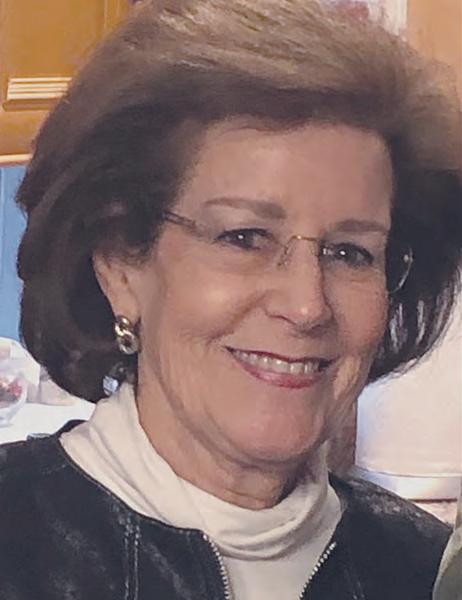
PAM MONSKY
hen I asked Carol Bloch about why she continues to volunteer with the Jewish Community Relations Council (JCRC) of the Jewish Federation of Omaha, Planned Parenthood, Courts Matter Coalition of Nebraska, Nebraska Appleseed, NCJW and Civic Nebraska, she paused, and said, “I can’t not do it. Some of my contemporaries and others may have thrown up their hands in frustration and I’ve said, ‘I’m done,’ from time-to-time, but then I wake up the next day and I realize that I cannot be done. Unfortunately, many of my passions have become political issues, like reproductive rights and voting rights. I have to be involved in order to preserve these civil rights that are so crucial to all of us.”
Carol was born and raised in Brooklyn, NY and started college at the University of Bridgeport in Connecticut. Carol and Steve met in New York, married there and then Carol moved to Omaha and transferred to Omaha University (now UNO) and received her degree in education. Carol taught first grade for a year at Lake School (since closed) in Omaha. Carol and Steve have two children, Jennifer Bloch Meyerson and Michael Bloch, as well as six “incredible, brilliant” grandchildren.
She describes her career after college and teaching as a “homemaker (does anyone even use that term anymore?),” and as a trained community volunteer, trained mostly by the Junior League of Omaha. But I see her as an incredible advocate and role model. Carol describes her advocacy as “rewarding and frustrating at the same time. The issues I care most about, after my family, are reproductive rights, equal rights for women, sepa-
ration of religion and government and public education. They all became political issues. They shouldn’t be, but that’s what got me involved in politics.... I had no choice.”
Like a lot of us, Carol has felt dismayed by current events in recent years. “The discouraging part is we are still fighting the same battles we fought 50 years ago, sometimes with even less success. People need to pay attention. They need to know where their elected official stand on the issues they care about and vote for the individual who agrees
with them most of the time. Politics, fortunately or unfortunately, is not a spectator sport.”
One of Carol’s guiding principles is that working with an organization or group enhances your voice.
“It’s hard, though not impossible, for one person to make a difference, but if you join an organization, like NCJW, they work in coalition with other groups. Everything is about working together.
NCJW helped me and Jan Schneiderman start Courts Matter Coalition of Nebraska. It’s a coalition to help US senators make decisions about nominating and confirming fair minded federal judges who serve lifetime seats on the federal bench and to educate the public about the process.”
Carol has served on the Jewish Federation of Omaha board, the Planned Parenthood Board of Directors including one year as President, and is a founding member of Planned Parenthood Voters. She was on the ADL-CRC Regional board and cochaired the Civil Rights Committee. She is now on the JCRC board and leads the Civil Rights Committee. In addition, she has been on the board of Nebraska Appleseed and served on several committees, and is a founding member and cochair of the Courts Matter Coalition of Nebraska.
With reproductive rights in the forefront of our political landscape again, Carol recalled why she got involved in the first place. “One of the reasons I joined Planned Parenthood is that it gave me the opportunity to talk to my own children at the dinner table about issues concerning family planning. In the early years of my involvement with Planned Parenthood, we were focused on birth control and See Carol Block page A5
We work in every dimension of commercial real estate. Our mission is to realize the potential in all the businesses and people we work with, so that together we can create the real estate solutions of the future.

We are driven by the entrepreneurial spirit of our people and the diverse needs of our clients. From instilling confidence in investors today, to re-imagining space requirements for tomorrow, we thrive in complex and ever-changing environments.
Bennett Ginsberg Managing DirectorThe Lions of Judah are among the most philanthropic Jewish women in the world. Globally, there are 18,000 Lions encompassing women of all ages. They make up a proud sisterhood of activists that care deeply about the future of Jews worldwide.
For the past 50 years the Lions of Judah have played a vital role in promoting social justice, aiding the vulnerable, preserving human dignity, and building Jewish identity.

Through their contributions of time and resources each Lion establishes herself as a community leader; advocating for the values they hold so dear. We are honored to have 77 Lions in our midst here in Omaha. Our Lions of Judah have set an exemplary standard of leadership and giving for others in our community.
When asked to reflect on why she is a Lion and what it means to her, Dana Kaufmann told us “I chose to be a Lion to honor my mother’s memory. She was very proud to be a Lion and for me, it is a way to carry on her legacy and her commitment to Tikkun Olam, while at the same time creating my own path.
The Omaha Jewish Community is important to our family, and being a Lion is one way I can continue to serve the community as we look to the future.”
The strength and vitality of a Lion’s contributions can continue through a Lion of Judah Endowment (LOJE). Establishing a LOJE enables a woman to leave a legacy to safeguard the values that have inspired her own giving.
Nationwide, 3,800 women have created a Lion of Judah endowment fund totaling $620 million in future giving. Every two years, Lions gather in a major city for three inspirational days. In De-
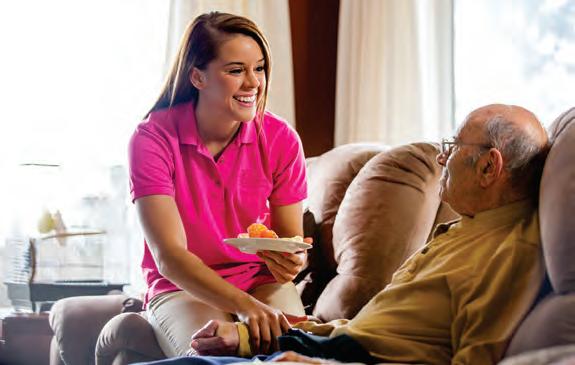
cember of 2023, many of our Omaha Lions headed to the conference in Phoenix, AZ, where they joined more than 1,200 female philanthropists and leaders from across the US, Canada, Mexico, Guatemala, and Israel.
The Lion of Judah conference attracts some of the most dynamic women in the world, women of all ages, shape, size and style, Nancy Schlessinger said:
“We may not look alike, but we think alike- and we share a passion for giving. At the conference, we heard from worldclass speakers on local and global Jewish issues. It was an incredible 3 days of inspiration and empowerment and even so much more meaningful because the conference was not able to happen in person since pre pandemic. These smart minded, giving women, were ready to be together in person, share experiences and just have that in person togetherness which is so impactful. We experienced quite a bit of learning, laughter, even tears (of happiness!) and engaged
in tzedakah.”

At the conference, Lions raised a collective $24.2 million to help build flourishing Jewish communities worldwide. Rep. Kathy Manning (D-NC), Amb. Linda Thomas-Greenfield, Academy Award winner Marlee Matlin, and award-winning journalist Katie Couric addressed the gathering. During her keynote address, Couric became a Lion of Judah and was pinned with the symbolic brooch.
At the conference, Sharon Kirshenbaum received the Kipnis-Wilson/Friedland Award (named after the founders of the Lion of Judah pin). For a number of years, the Jewish Federations of North America have honored lay leaders with the Kipnis-Wilson/Friedland Award.
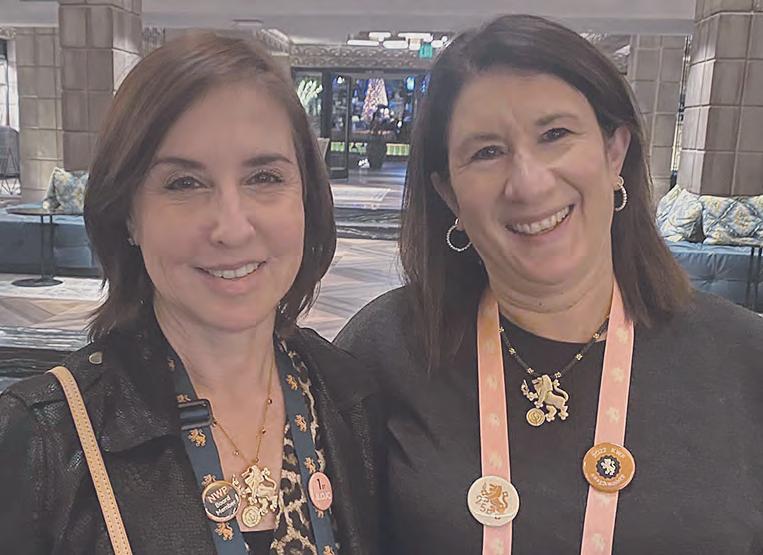
“Being a Lion of Judah is important to me,” Sharon said, “because it signifies that I make philanthropy a priority and I care for and support the Jewish Federation of Omaha. The Lion of Judah conference See Lions of Judah page A6
Experience Little Shop of Horrors on stage, a gleefully gruesome cult comedy with an infectious 60s-style score. Seymour, a nerdy store clerk at Mushnik’s flower shop, is thrust into the spotlight when he happens upon a new breed of carnivorous plant. But his newfound fame comes at a cost when Seymour discovers the sassy seedling has an unquenchable thirst for human blood. Ravenously fun, dripping with camp and nostalgia.
The production runs at the Omaha Community Playhouse in the Hawks Mainstage Theatre from April 14 – May 7, 2023. Tickets can be purchased by visiting the OCP Box office at 6915 Cass St., calling the OCP Box Office at 402.553.0800, or visiting omahaplayhouse.com

If you do business with any of our advertisers, please tell them you saw their ad in the Jewish Press. It really helps us!


Omaha is lucky to have Andee Scioli, and the feeling is mutual. “I love Omaha,” she said.
“There’s no place quite like it. The people here are friendly and hardworking. People give back and take care of each other.”
Andee is one of those Omahans that gives back. In addition to spending time with her family and practicing law at Kutak Rock, Andee also gives her time to numerous nonprofit organizations.
mother and father, Pam and Bruce Friedlander and husband, Anthony Scioli, showed me how to make a difference and inspired me to do more,” she said. At a very young age, Andee delivered dictionaries with her mom and the women of NCJW to students at their schools. When Andee was in elementary school, she was a part of the Federation’s Campaign Cabaret, directed by Joanie Jacobson, where hundreds of people in the Omaha Jewish community came together to sing and dance. As a
Andee has spent thousands of hours in the last 23 years to help make Omaha a better place. She has served on Aksarben’s Women’s Ball Committee, the Children’s Museum Board, the Rose Theater Guild, Lauritzen Gardens Antique Show Committees, the Cystic Fibrosis Foundation Board, the Omaha Community Playhouse Act II committee, among others. She also served on the Committee on Inquiry (appointed by the Nebraska Supreme Court). She currently serves on Omaha Performing Arts’ Presenters Guild, helps with show choir programs at Westside High School and serves with her husband, Anthony Scioli, as the local Co-Chair of Alumni Interviews for the University of Pennsylvania.
“It’s important that the Jewish community is represented on non-profit boards in the community to help improve interreligious relationships, inclusivity and understanding.” Andee said. “A diverse board of people with unique perspectives fosters greater creativity, innovation and understanding, and it also allows a non-profit’s mission to reach more people.”

Andee grew up in Omaha, but left to attend college at the University of Pennsylvania and law school at American University’s Washington College of Law. She returned because of family and the community.
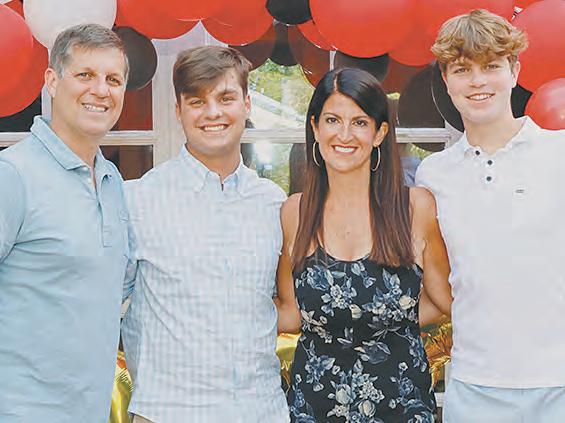
Andee has learned from many in the Omaha community about the importance of giving back. “Throughout my life, many dedicated and talented Jewish women and men, including my

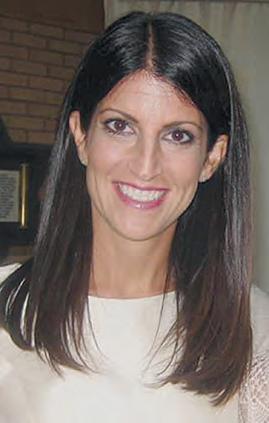
Continued from page A3 family planning. We didn’t start out providing abortions. When we did it was because we needed to fill a need because no one else was providing this service. Everyone needs to understand that family planning does more to eliminate the need for abortion than anything. Abortion needs to remain safe, legal, affordable and accessible”.
Carol feels that the lives of Jewish women in America have been improving in many respects. “Synagogues and temples are definitely more welcoming to female clergy and more leadership roles for women volunteers are available. Women are far from equal in many spaces, but we have made some progress.” There are a few women she considers mentors; Sammie Moshenberg and Jody Rabhan, Directors of Washington Operations for NCJW, and Becky Gould, the director of Nebraska Appleseed.
As she considered her role as a leader, Carol reflected. “I do consider myself a
teenager at United Talmud Torah of Omaha, she learned from teachers such as Blanche Wise, Gloria Kaslow and Margo Riekes about the Hebrew language, the Bible, the Holocaust and Israel. She was also influenced by her father and his commitment to building a new home for Beth El Synagogue. In her third year of law school, she attended NCJW’s leadership conferences in Washington, DC at the invitation of Carol Bloch and Jan Schneiderman.
“When I moved back to Omaha, I was excited to reengage with the Jewish community.”
Andee said. Andee served as the co-President of NCJW and also served on Beth El Synagogue’s Board of Trustees. In a full circle moment, she served as the Federation’s Production Chair of Campaign Cabaret. She also served as the Federation’s Annual Campaign Co-Chair with her husband, parents, brother and sister-in-law. Recently, she cochaired the Challah Bake for Chabad.
Andee admires leaders who are kind, talented, hardworking, passionate and generous with their time. Andee’s children are well on their way to following in their mother’s footsteps, and they have a great teacher.
“I want to my children to contribute in meaningful ways and understand the importance of taking care of all people,” she said.
Andee hopes to keep Omaha growing as a warm, welcoming, supportive and engaged community, filled with opportunity and joy.
See Andee Scioli page A7
leader in some respects, however, to be called a leader you need followers. I have not been as successful in that regard as I would have liked... but not for lack of trying!”
“Unfortunately, our work is never done,” Carol said. “With so many volatile and important issues currently before us, I see no ‘mission accomplished’ sign on the horizon. My priority is educating the younger generation,” she added. “I want people to learn about the issues, and then I want them to take the next step by contacting their representatives, writing letters to the editor, and getting involved. Even if our elected officials do not agree with us, they need to hear from us.”
At this time in her life, Carol hopes to hand off her social-justice leadership baton to younger, inspired community members. She isn’t going to stop her work, but, “it’s time for someone else to lead,” she said.
“Please take over where my generation has left off.”

Continued from page A4 was amazing. There is nothing like being in a room with over 1,200 Jewish women who share your values. My takeaway is that we have work to do to have more women join us as Lions of Judah.”
Giving to Federation is not a tradition she was brought up with, Sharon said:
“I learned its importance from my in-laws, Joe and Maxine Kirshenbaum. Nowadays, the Federation is making it easier to become a Lion of Judah through a step-up program. I encourage any woman who would like to become a part of this amazing sisterhood to speak to one of us or the Federation. I really believe that you get more than you give!”

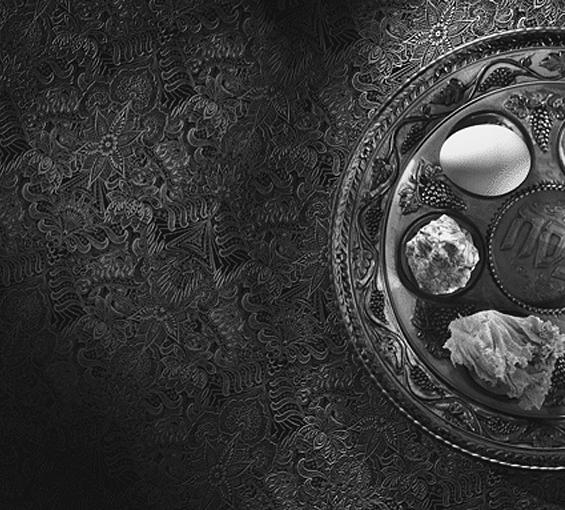

Several other Omaha women lay leaders have received the Kipnis-Wilson/ Friedland Award in the past, including Nancy Noddle, Patty Nogg, Maxine Kirshenbaum, Zoe Riekes, Anne Shackman, Dorothy Riekes, Jan Schneiderman and Stacey Rockman. This distinguished group of women are recognized for making a significant impact in our community and motivating other women to take an active role in philanthropy and Jewish community involvement.

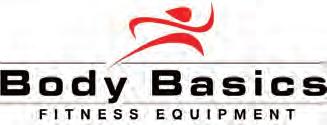
Through their contributions of time and resources, each Lion establishes herself as a community leader; advocating for the values they hold so dear. Our Lions of Judah have set an exemplary standard of leadership and giving for others in our community.

“The true passion and dedication lie behind the pin,” JFO Foundation Executive Director Amy Shivvers said. “Lions get things done!”
“I have thought about how far we have come as a people,” Amy added. “My generation is accepted and assimilated into the general community, which is wonderful. The downside is, we can disperse and be spread thin and forget our roots and heritage. As we celebrate the 50th Anniversary of National Lion of Judah, we need to infuse each other with passion, remind each other why the Jewish community is important. We can’t leave behind the urgency and commitment that our parents and grandparents brought to the table. If we don’t take care of each other, who will?”
Sharon agreed: “Giving is important, period. It is up to all of us to ensure the future of our Jewish community here in Omaha and around the world. I truly believe it takes all of us at every giving level to accomplish this. My hope is that our Jewish community continues to thrive as a welcoming place for all. The Jewish Federation of Omaha holds a special place in my heart because I worked there for 20 years. I was able to see firsthand how extensive the needs are in Omaha and around the world.”
In 1970, Adele Rosenwald Levy, daughter of Julius Rosenwald, Chairman of Sears, Roebuck and Co. and noted philanthropist, was the first Chairperson of the Women’s Division for the United Jewish Appeal. Twenty-four years later, Norma Kipnis-Wilson envisioned a path for elevating women’s leadership in Jewish philanthropy. She took the Lion of Judah as a Symbol of the strength of Judaism and Jewish women.


Since that first year, Lion of Judah donors have raised more than a billion dollars to benefit Jews in need in Israel, in countries worldwide, and in local communities. They support social justice, heal the sick, feed the hungry, preserve human dignity and build Jewish identity. Nearly 18,000 women worldwide from 146 Federations are a part of this mission. The Omaha Lion of Judah division, introduced in 1988, recognizes women who personally contribute $5000 or more to JFO’s campaigns each year. Women who reach Lion level receive a gold pin in
the shape of the Lion of Judah, a worldwide symbol of their commitment to the global Jewish community. There are close to 80 Lions of Judah in Omaha and their gifts to the 2022-2023 Annual Campaign represented 21 percent of Campaign dollars.


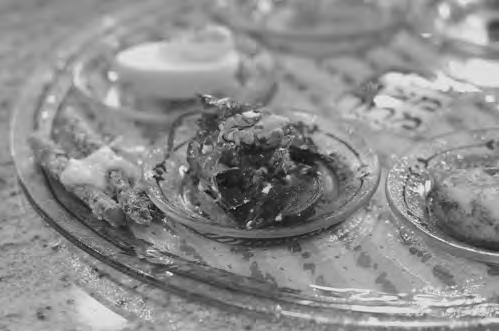

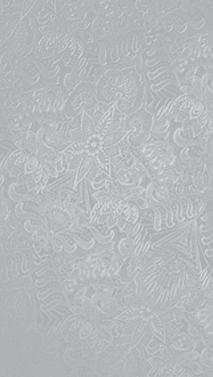
“I feel like being a Lion of Judah is like being part of a worldwide sisterhood of Jewish philanthropists,” Louri Sullivan said.
“I am thankful to women like Bobbie Epstein that brought the Lion program to Omaha, and my mother --who is a Lion in Omaha and Aspen-- who have always shown me that giving back was important. I have especially loved going to the last two Lion conferences - so inspiring and an opportunity to hear amazing speakers that we might not have in Omaha. This year, I took my 23-year-old daughter with me. She was able to network with other young women from Chicago and is looking forward to getting involved with the Federation there.”
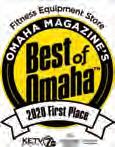
Cindy Goldberg agreed: “It means being part of a group of committed and passionate volunteers who really care about our community and the importance of building a future. Attending the conference was amazing, it is so powerful just being a part of over 1,000 women who all care so much, the speakers were great, and it was so fun the hang out with the Omaha women that attended!”
For Amy Shivvers, “it represents a place in our community, and an important Jewish link to the origins of our people. It is a symbol of strength and a commitment to the mitzvot of Tzedakah, seeking justice with the spirit of generosity and selflessness.” She also said that the dedication, strength, caring and commitment of Jewish women amazed her: “I felt inspired and empowered to be part of a global peoplehood who work across barriers and challenges to give back to others and make change happen. The Lions of Judah are ready, willing and able to meet each woman where they are at in their philanthropic journey. There is a path for everyone who raises their hand and is ready to give of their time, talent and treasure. After the conference, women who attended met with others to support and encourage their first and next step to becoming a Lion.”
Becoming a Lion was something that was important to Louri. Anne Shackman talked to her many years before she was ready, she said, but she planted the seed that the future of the Omaha Jewish community was in each of our hands.
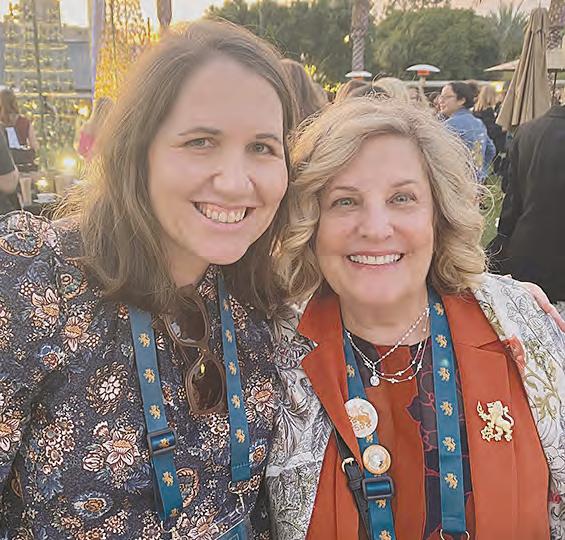
“I never took that conversation lightly,” Louri said. “I do believe that giving at any level is important. We all need to be See Lions of Judah page A8

Back in 2014, the Jewish Federation of Omaha had a woman as its president. Like all JFO presidents, Jody Malashock chose to write messages to the community on a regular basis. In February of that year, she wrote the following:
A few weeks ago, I met with Eleanor Dunning, age 9, daughter of Eric Dunning and Toba Cohen-Dunning, on her fifth annual trip to the Jewish Federation offices to donate her tzedakah to the Annual Campaign. This was actually the second time I had met Eleanor. The first time being when she brought in her tzedakah a few years ago, when I was Women’s Campaign Chair.
I asked Eleanor, “Why do you do this?”
She answered, “There are other children who don’t have what I have and this could help them.”
While there is so much keeping me busy at the Federation, seeing this is the best! This is what it is all about.
Leadership consultant Shifra Bronznick says: “Leadership is a verb, not a job title.” The truth is that women need to see other women as leaders, so they can envision themselves as leaders.
The Dunnings bring Eleanor so she can see her gift in action. Eleanor sees the photos on the wall representing the history of our Jewish community. She sees photos and maps of Israel and already understands where her dollars go and why. It is great to see a young girl learning from her parents, becoming a supporter, not merely a follower. Toba, in fact, commented how Eleanor saw the women leaders on the campus as strong role models.
Continued from page A5
Andee encourages others to support causes they are passionate about because it can be a mutually beneficial experience. Andee is now serving as the Director of Development for the non-profit, Partners for Livable Omaha, helping to develop a 10-series, city-wide youth talent show as well as a city-wide youth performing arts advisory board. In addition, Andee works for Omaha Public Schools helping students with college essays.
STEFANIE BAGUIAN
Temple Israel Director of Communications
If at a moment’s notice you had to pack a meaningful item that would fit in a suitcase the size of a regular carry-on, what would you bring?
This is what Temple Israel is asking of those attending the Passover Seder. While we might not be crossing borders, we are inviting you to make the short trek to us for an all-ages Community Passover Seder. As we re-enact our own leaving of Egypt with all of the ritual foods and songs, we also ask those attending to bring that special item you’d pack in your go-bag. We will share with each other why these particular items have meaning for us and enjoy a delicious meal, including looking for the afikomen after dinner.
We look forward to learning something new about our
many community members, young and old, as we explore what it means to leave Egypt ourselves. We do ask all those who are hungry and plan to eat with us to sign up by April 2 Temple Israel is also hosting its Festival Service that same morning at 10:30 a.m. We will conclude on April 12 with a service at 10:30 a.m., including Yizkor, a service of remembrance.
For updated information on Passover, please visit temple israelomaha.com/Passover
Join Temple Israel for Passover:
April 6, Passover Festival Service, 10:30 a.m. and Passover Community Seder, 6 p.m.
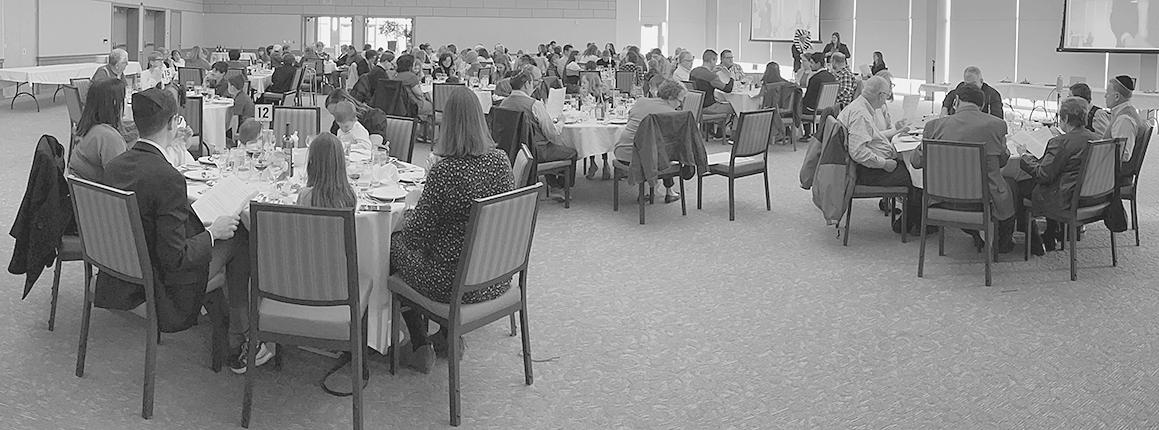
April 7: Shabbat Service, 6 p.m.
April 8: Shabbat Service, 10:30 a.m.
April 12: Passover Festival Service and Yizkor, 10:30 a.m.

Continued from page A6 invested in the future of our Jewish community. I learned from Michael Staenberg it is more than just money. It is time and talent as well. We can all give something. My dream for the Omaha Jewish community is to build a new community mikvah, but that is just one dream. There are many more, and together, we can achieve more than we can dream of.
I think the Jewish Federation of Omaha is the convener and truly the organization that brings us together. Omaha has one of the most amazing Jewish communities in the country with a beautiful/ functional/busy JCC, amazing synagogue congregations, the Rose Blumkin Home, a Jewish Day School, the most amazing Early Learning Center and such great programming like Momentum trips to Israel, Teen trips to Israel.”
“The Federation brings the contributions of donors to reality,” Amy added. “This powerful ecosystem is the driving force of our community and how we enrich and ensure our children and our children’s children are happy, thriving and find joy in the Omaha Jewish community.”
“I attended the Lion of Judah conference for the first time this past December,” Jennifer Glazer said. “I had been a passive Lion over the years, with minimal participation. It was because of the
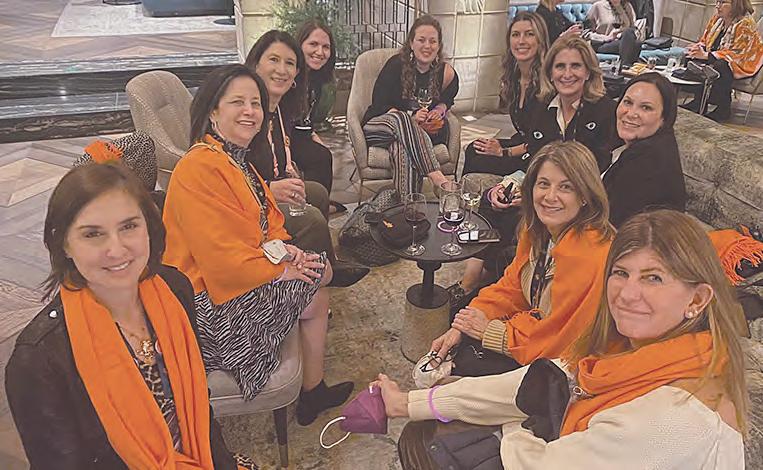
warm invitation from friends and a chance to celebrate another friend receiving an honor at the conference that I decided to go. I’m so glad I went! Not only did I enjoy the time with good friends, but I was able to gain a deeper understanding of the important work of the Jewish Federation and the Lions. Being at the conference reinforced I was making good choices with my philanthropy. I especially appreciate the social justice role of the Lion, as I spend most of my time devoted to climate change and environmental justice issues. My hopes and dreams for our Jewish community is that we will all recognize the
intersectionality of race, religion and environmental justice and work together on these issues. Lions are strong, energized global activists and I welcome and invite them into the climate and environmental justice space.”
“The Lion is a symbol of strength,” Nancy said. “Being a part of this amazing group of women, means strength, like a Lion--but in a meaningful way. We hope to have the strength to encourage other women in our community to join think about becoming a Lion of Judah.”
“The most important thing is to give at a level that you are comfortable with,”
See Lions of Judah page A10

Compassionate, thoughtful, dedicated, kind and giving are all words that come to mind when I think of Gretchen Radler. Gretchen has dedicated her life- both as a volunteer and professionally- to helping others.
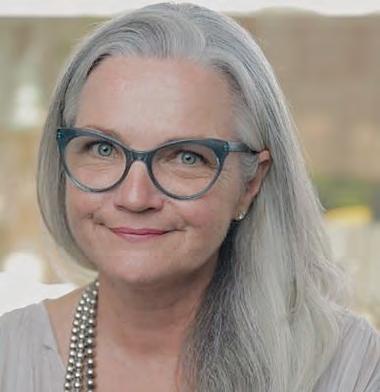
She is CEO of Bloom Companion Care Services and co-president of the L.O.V.E. Board (League Offering Volunteers for the Elderly) which works tirelessly to support, improve and enhance the lives of Rose Blumkin Jewish Home Residents and staff. I had the pleasure of serving under Gretchen during my tenure on the L.O.V.E Board before and during COVID. In spite of the many challenges posed by the pandemic - both at its height and nowGretchen has always been full of enthusiasm and ideas on how L.O.V.E. could continue its mission to ensure L.O.V.E.’s presence was felt even when socially distanced.
Q: Where did you grow up?
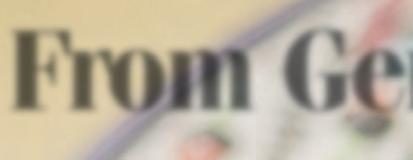

A: I have lived in Omaha Nebraska, all but five years of my life. Colorado and South Dakota are my other life experiences.
Q: What does Judaism mean to you?
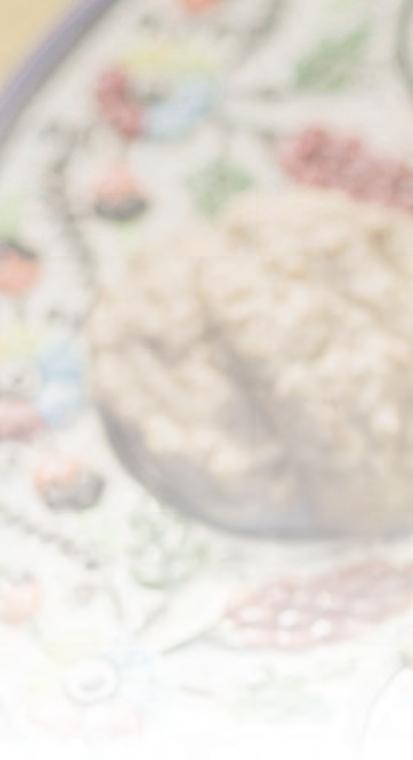
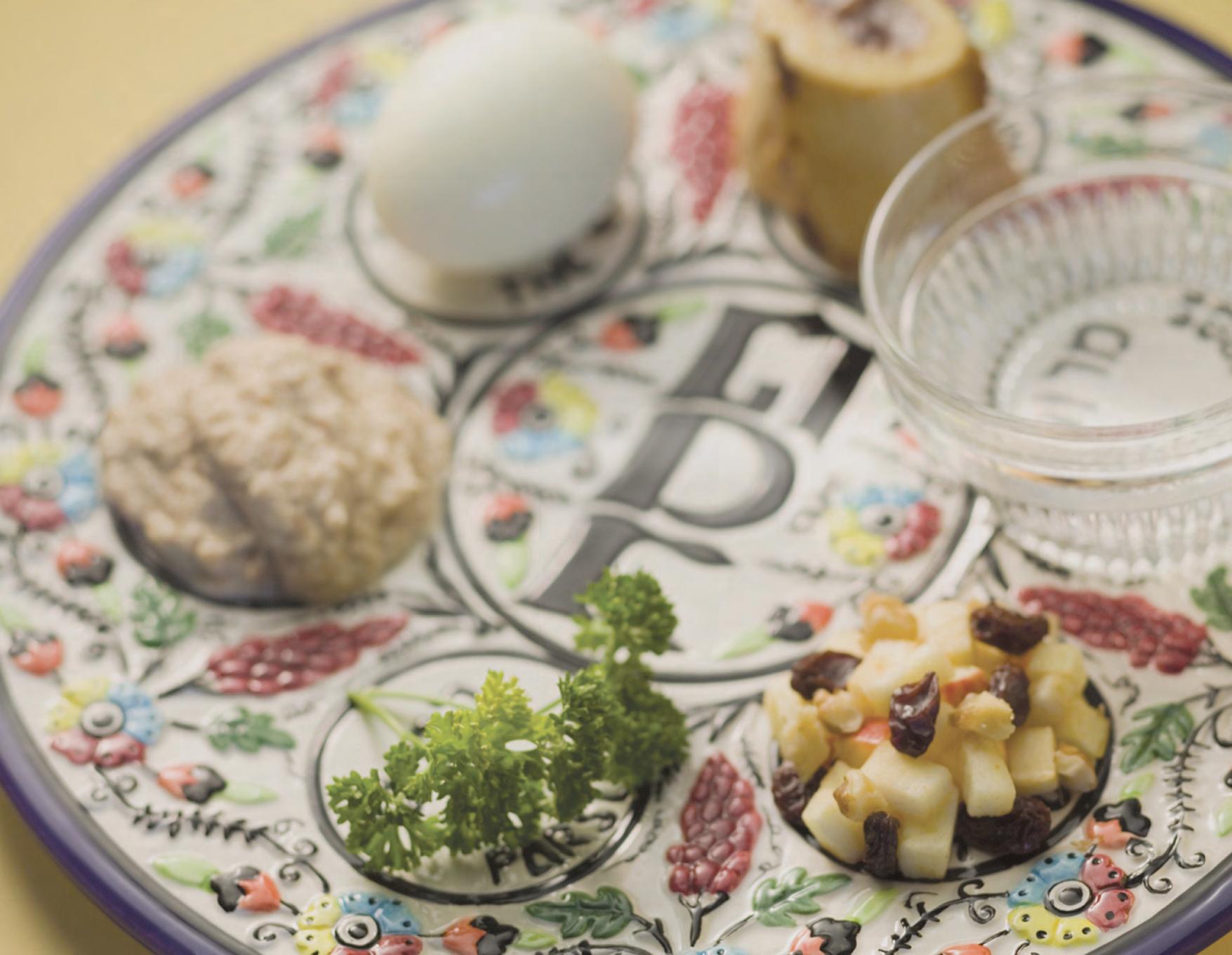
A: To me, Judaism is about community, life education and accountability.
Q: Do you draw any inspiration from other Jewish women (related or otherwise?)
A: I have several Jewish mothers... I mean mentors! Eunie Denenberg and Bella Eisenberg are the strongest early contributors... even before I converted, they took me under their See Gretchen Radler page A10
The Rose Blumkin Home Board, Staff and Residents wish the community a Happy and Healthy PassoverGretchen Radler
Jewish Press Editor

Since 2015, Beth Cohen has worked as Head of School at Friedel Jewish Academy. It’s a place she was already familiar with; Beth and husband Harry sent their children, Zoe and Brad, to the day school.

With a degree in Elementary Education from Drake University, Beth’s career took an unusual path toward leading a school. She worked for eight years at Omaha’s JCC, first as the BBYO Regional Director and then as the Youth and Camping Director. Following her time at the JCC, she served for twelve years as the Executive Director of Beth Israel Synagogue in Omaha.
For the three years prior to starting at Friedel, Beth was the Executive Director of the Center for Jewish Life, the Federation agency charged with Jewish engagement and education. Since 2015, she has led the school during a time of tremendous growth including enrollment growing by 60%, a successful $1M endowment building campaign, and the
2023-24 expected completion of a building renovation and the launch of middle school grades. She brings a wealth of experience in organizational planning, fundraising, and creating community collaborations.
Being a ‘Jewish Leader’ is “more than just being Jewish and being a person who leads a team,” she says. “It means that everything I do is done through the lens of Jewish middot (character traits) and values. It means that in my work, every day, I do my best to hold to the halacha (Jewish law) to not embarrass others, to give others the benefit of the doubt, and to be fair in business dealings. In my business, fairness isn’t just as the steward of an annual budget, but the fairness in refereeing a soccer game at recess.”

She is proud of the big things that have been accomplished at Friedel in the last 8 years:
“The start of our Innovation Learning curriculum, the partnership with the Omaha Conservatory of Music for our music program, the start of our student travel experiences See Beth Cohen page A11

Great, and perhaps not so great, moments in history have a tendency to be recorded, taught, and memorialized. While large scale historical events are certainly important and worthy of study, I believe it is the little stories; the personal accounts and oral histories; the funny anecdotes that are repeated like lore through families; the somber first person accounts. These are what really capture the history of a place, of a community and even, of a people.
One of the greatest pleasures of writing, in my opinion, is meeting with ordinary, everyday people, and learning the extraordinary stories that each one holds. Our own little pieces of history; accounts from everyday life, that may not be remembered, grandly marked or taught, but that form an important piece of our humanity, just the same. In today’s day and age of internet searches, blogs, social media and oversharing, more stories than ever are being told to a larger audience on a greater platform far exceeding anything else in our history.
While the daily news of the world is often a cause for dissension or distress, perhaps the silver lining is that there has been no richer time for storytelling and sharing of experience and hope. Our differences are not as great as the big story dominating today’s daunting headlines would have us believe, and our small histories can help us to remember this.
Our individual histories are important, just as each thread
used to sew a great tapestry are important. This Passover, as we gather together to recall the history of our ancestor’s plight in Egypt, and the miracles that delivered us from bondage, we have the unique opportunity to add our own histories to this year’s story.

In every generation, in every year, there seems to be a Pharaoh; that which enslaves and burdens us. It is important to remember when faced with the obstacles life brings us, that our personal stories do not have to be about the day’s current Pharaoh. Our stories are about love, life, and perseverance in the face of all odds. Our stories are about community, family, friendship and growth through good times and bad alike. Our stories are about joy, sorrow, and faith.
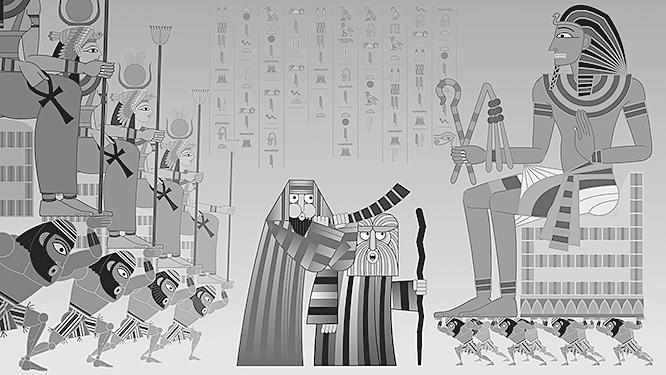
After listening to the Haggadah this year, consider having your seder guests, young and old, share a small story about themselves. If you are feeling particularly ambitious, help record those small histories that make up the fabric of our community. Think also about stories and photos your family could share with each other or, perhaps with the B’nai Israel Living History Museum in Council Bluffs or The Nebraska Jewish Historical Society on the JCC campus, so that tomorrow’s community can draw inspiration from us.
The stories we share have the power to bring us together. They are our legacy. This Passover, as we share our history, think of ways to share your history too, and together, may we leave Mitzrayim behind.
Continued from page A8 wings and opened their homes to me in friendship. We had many wonderful holiday dinners that I cherish. They were kind, smart, creative and open. I miss them deeply. The Mahjong ladies - Yevette Roffman, Maxine Noodell- have also included and challenged me to be a better community supporter. Driving ladies who can no longer drive themselves, creating community for the ladies who took care of our community is also highly inspiring to me. I also credit Lois Wine, Vicki Perlmeter and Shelly Stern -and really all my L.O.V.E. Board mentors and colleagues- for showing me the way to support elders in meaningful ways.
Q: What does it mean to be a Jewish leader?
A: Jewish leadership is an opportunity to open up skill sets our community will benefit from long term. We tend to think both back and forward, including our mentors’ lessons as we contemplate how to approach our future.

Q: Is ‘Leading Jewishly’ different for men than for women?
A: Perhaps, but I can only speak for myself. I think all people bring a different lens to every situation- leading Jewishly is unique to each Jew, each person. I am different than when I was younger, not smarter, just different. Leadership is something that evolves and adapts depending where one is in life and the situations at hand. I think leadership is less of a gender thing and more a timing and situational thing.
Q: Describe your experience as a Jewish professional/ lay leader.
A: I share my experiences to offer insight and listen to others’ experiences, and work towards mutual goals. I want to connect with the joy in our culture.
Q: What are you passionate about/what makes you happy (inside or outside of our community)?
A: I love Mahjong, cooking and listening to people’s stories.
Q: If you could change the world, where would you start?
A: I would insist on peace, love and understanding
Q: What is your favorite part of the Jewish community?
A: I love our food, our commitment to each other’s well being and to culture.
Q: How can Omaha continue to grow/what would you like to see happen in our community?
A: I don’t necessarily believe Omaha has to grow larger, I think it should grow deeper. I appreciate how many causes we throw our energy behind, it shows we want to respect our community with options to stay here, we can make space for what brings you joy, and relevance.
Q: What makes Omaha ‘Home’?
A: Omaha is home because there are certain people here I love to run into, our children belong to all of us, we have an awesome Jewish community.
Q: How much of being a good leader is intentional, and how much is instinct?
A: I have no idea, my daughter said I am an intentional leader, I think part of being intentional is listening to your own and other’s instincts.
Q: Who are you doing this for?
A: I am a firm belier in leaving this place better than I found it, which is hard because this community really steps up and pushes itself and us with it.
Q: In your opinion, how have women’s roles in the Jewish community changed from your earliest recollection to today?
A: I see the women of the past when I look at the future, The ones who cultivated me saying I found you, I planted you, I watered you... How can you repay that, it’s impossible, so I offer my time and hopefully those women feel the love of their work.
Continued from page A8
Cindy said. “Becoming a Lion is a big step and commitment, but being a part of this 50-year-old group is a really special feeling. And I’ve said it before, but it’s only the Jewish people that will support our Jewish community, so it’s really up to each of us to ensure our future.”
“Jewish community is about creating a rich Jewish future for those after us,” Nancy agreed, “so the future is built on what we do today. The Federation creates opportunities for people of all ages to participate and celebrate in Jewish life and to connect with our community, and with Israel. To do so, we help children understand Judaism - its values and traditions - through formal and informal Jewish educational opportunities. We connect Jewish families of all religious backgrounds to each other and to our community. We create pride among our teens. We train the future leaders of the Jewish Community. Finally, monetary giving is necessary, but giving of oneself is truly even more beautiful. Sometimes that is all that one can do, and that, too, is perfect.”
Continued from page A9 (6th graders to Birmingham, Selma and Montgomery, AL; 7th graders to Washington, D.C.; and 8th graders to Israel), and the launch of our middle school next year.”
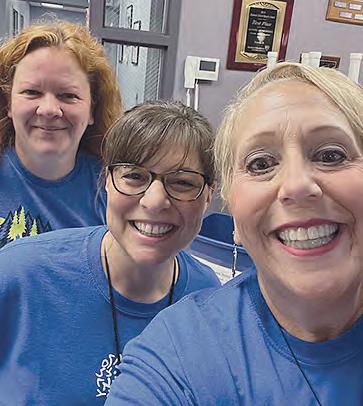
“The support of exceptional lay leaders and tremendously talented teachers has given me the opportunity to help build Friedel into the school it is today,” and the school it will become as we expand through to 8th grade. But, I’d have to say that the things I am most proud of are the day-to-day decisions that I make that impact the well-being of the children at Friedel. From being committed to our daily 30-minute active recess followed by 30-minute lunch period, to establishing Friedel as a “no homework” school, to our character education curriculum, to having all staff trained in the Boys Town Well-Managed Schools program, these are the little things than come together to make a big impact for children. When children feel heard and empowered, safe and supported, they can excel in their learning. Too many schools skip those important steps and I’m proud of the day-to-day work we do at Friedel to benefit the well-being of our students.”
As Head of School Beth is in the unique position where she is surrounded daily by young people who watch her every move. She has no choice but to be a leader in that context, so we asked her: how aware are you of your very real influence over the students?
“Very aware!,” she says. “When you work with children, it is constant. I notice the kindergarten students who watch me sing Hatikvah each morning
at school, so they can learn the words. I notice the students who hold the door open for a friend after I’ve complimented a peer for doing the same. It also means that I’m so aware of my responses - to make sure I don’t lose my cool if I get upset about something, that I model how to be mad without raising my voice or saying bad words, and to share in children’s excitement over the little things that happen in their lives.”
Beth also acknowledges that being a role model means emulating those who came before; she, in turn, has had her share of people in her life to learn from:
“I’ve been inspired by the amazing women that I’ve had a chance to work with in my career in Jewish Omaha,” she
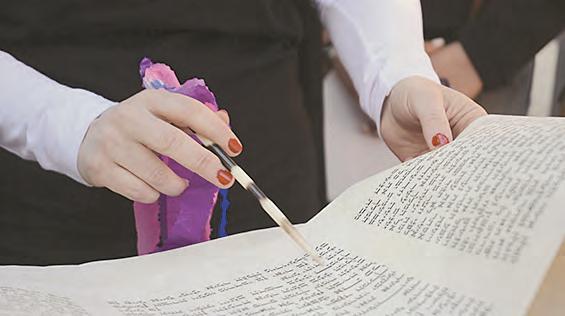
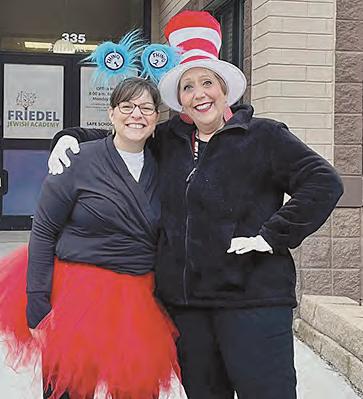
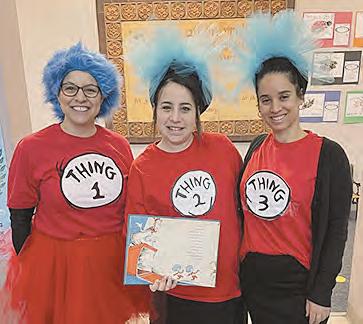
says. “You ladies know who you are! The board presidents, committee chairs, staff members, do-ers, and changemakers. Where would our community be without you? Personally, I know I could not have accomplished as much for the organizations that I’ve worked for if not for these amazing women.”
About women in leadership roles, she says:

“How interesting to imagine that one day children won’t think it is so exciting to have a woman as vice president of the United States, it will just be commonplace, something that has been true their whole lives. Seeing women in leadership roles in their daily life is just as important.”
JTA

When Alyza Lewin became a bat mitzvah in 1977, the fact that she had a ritual ceremony at all was still relatively revolutionary in Orthodox circles. But she took the rite of passage a step further, and did something that, for Orthodox Jews at the time, was considered the exclusive province of men. She chanted the Scroll of Esther, known as the Megillah, in front of a mixed-gender audience in suburban Washington, D.C. on the festival of Purim. Among the crowd were her grandfathers, who were both Orthodox rabbis. Lewin was the See Orthodox women read Torah page A12
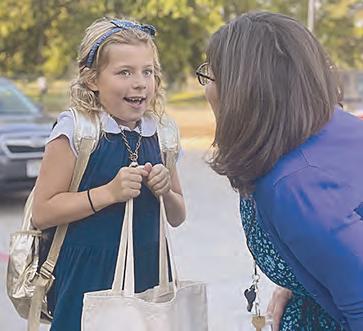


MULTIFAMILY PROPERTY MANAGEMENT
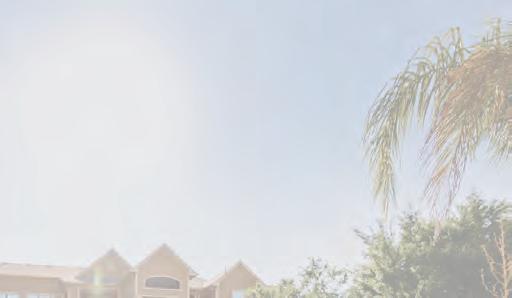
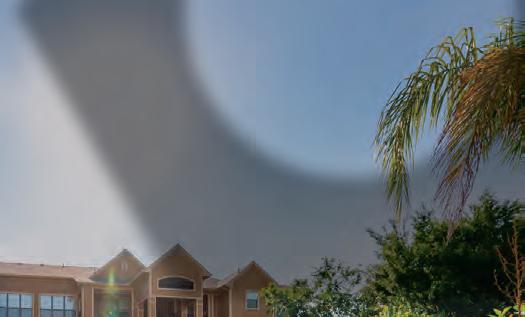


COMMERCIAL SALES, LEASING & MANAGEMENT

COMMERCIAL PROPERTY CONSTRUCTION









COMMERCIAL FACILITIES MAINTENANCE


MULTIFAMILY CONSULTING, AUDITING, & TRAINING SERVICES

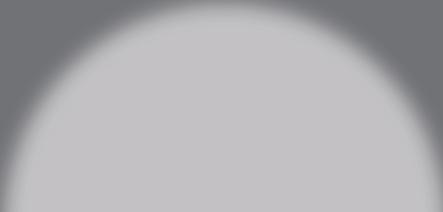






Lisa Cooper, Director of the Pennie Z. Davis Early Learning Center (ELC), kindly agreed to be interviewed for our Passover issue. A longtime leader in the Jewish community, Lisa’s passion for Judaism and working with our youngest community members and their families is apparent in everything she does!
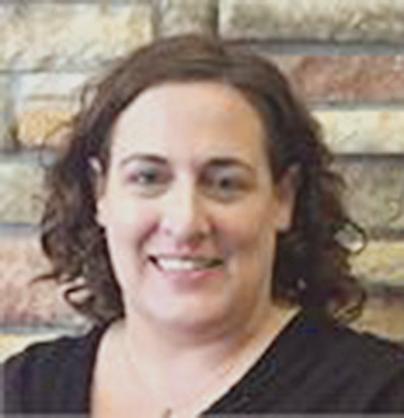
Q: Where did you grow up?
A: St. Louis, Missouri
Q: What does Judaism mean to you?

A: Judaism means being part of a shared history and shared experiences, a way to seek common ground in a larger group and help make this big world feel a little smaller.
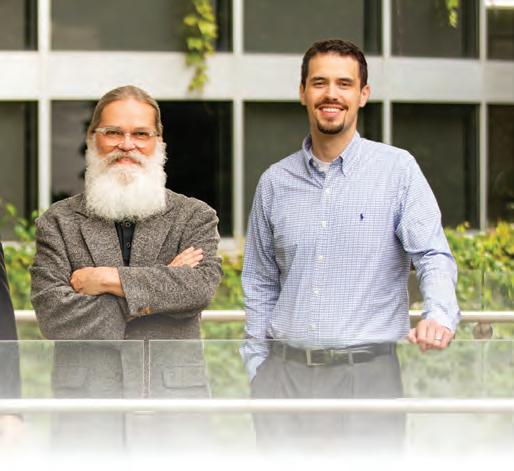
Q: Do you draw any inspiration from other Jewish women (related or otherwise?)
A: My biggest inspiration in anything I do is my grandmother, Marlene Carl. She’s been gone for over 20 years, and I still find myself thinking “How would grandma handle this one?” She was the host of all of our holidays, and set the bar very high. I had dreams of being this grand hostess and cooking a huge feast for all of our holidays, and my husband can attest that I unfortunately, did not inherit her cooking skills at all!
Q: Is ‘Leading Jewishly’ different for men than for women?


A: Historically, Omaha has had a long line of women in leadership roles. I am so lucky to be a part of that group.
Q: What kind of example do you want to be to your children?
A: I want my son, Henry, to see the role that Judaism plays in my life and how it connects us to our history. I want him to know that he is connected to a world of people who share the same values. As a grandchild of Holocaust survivors, I view my family as the embodiment of what they struggled so hard to protect.
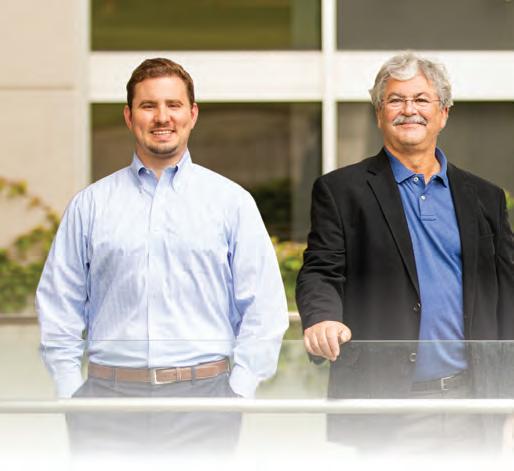
Q: Describe your experience as a Jewish professional/ lay leader.
A: My first Jewish leadership experience was within my synagogue youth group. I held various titles, then became president, and then sought out a regional office my senior year of
high school. I was active within Hillel in college and then took a break to focus on my career for a few years. I moved to Omaha after teaching elementary school in both St. Louis and Reno, Nevada, and had planned on teaching elementary school here, too. The state of Nebraska wasn’t very helpful in getting my license transferred over, and wanted me to take a series of classes, so I started looking for other opportunities. Having lived here for a few months and not really met anyone outside of my husband’s coworkers, I knew I needed both a job and a community. I saw that the The Pennie Z. Davis ELC (back then it was the CDC) was hiring and called then director, Corey Kirshenbaum. We met and the conversation quickly shifted from a job interview to a more casual conversation about Jewish Omaha. I taught Pre-K at the school for seven years before moving into the Assistant Director role when the fabulous Carole Greenberg moved to Florida. I worked closely with Jeanine Huntoon, our previous director, and started to see myself in this role. I was incredibly fortunate to be accepted into the Sheva Center Leadership Institute, a three year national fellowship opportunity offered by the Jewish Community Center Association. From 2018-2021 we met regularly and explored leadership within early childhood settings, within Jewish settings, and within our own communities. Unfortunately the pandemic threw a wrench in that experience and our whole focus shifted to keeping our early childhood settings afloat during a very uncertain time in this field. I was hired to be the director of the ELC shortly before Jeanine retired in June, 2021.
Q: What are you passionate about/what makes you happy (inside or outside of our community)?
A: My biggest passion is my family; we have so much fun together and truly like being around one another. It’s hard that my extended family live in other cities, but we try to make an effort to get together as much as possible.
Q: If you could change the world, where would you start?
A: I would scream from the rooftops that early childhood education is such an essential part of ANY real change. We See Lisa Cooper page A13
As women’s Megillah readings have increased in popularity, they have reached the farthest parts of the globe, even reaching as far south as Antarctica.

Continued from page A11
eldest of two daughters, and her father wanted to find a ritual she would be allowed to perform while remaining within the bounds of traditional Jewish law.

“My father, when it came time for the bat mitzvah, was trying to figure out what was something meaningful that a young woman could do,” she said. “So he decided: My Hebrew birthday is four days before Purim — he would teach me how to chant Megillat Esther.”
For many modern Orthodox women more than four decades later, women’s Megillah readings have moved from the cutting edge to squarely within the norm. The increasing number of women’s readings is an indication of the growth of Orthodox feminism — and its concrete expression in Jewish ritual.
According to the Jewish Orthodox Feminist Alliance, at least 105 women-led Megillah readings, for both mixed-gender and women-only audiences, are taking place worldwide this year. In 2019, according to JOFA, the number hit a peak of 139, up at a relatively steady pace from 63 in 2012, when the group began collecting data. The number of readings dipped last year due to COVID-19 precautions, but JOFA expects this year’s total to come close to the pre-pandemic high once congregations get around to notifying the organization of their events.
JOFA’s executive director, Daphne Lazar Price, said she had observed but did not quantify a related phenomenon where she’s seen “tremendous growth:” girls marking their bat mitzvahs with Megillah readings, as Lewin did.
“Instead of a traditional Torah reading service or women’s See Orthodox women read Torah page A14




JTA
When a film about a group of Israeli youths who visit former concentration camps in Poland premiered on Sunday at the Berlin Film Festival, its Israeli producer took the microphone after the screening to decry the state of his nation.
“The new far-right government that is in power is pushing fascist and racist laws,” said Yoav Roeh, a producer of Ha’Mishlahat (Delegation) on stage after the film’s premiere. He was referring to lawmakers in Israel’s government who have long histories of anti-Arab rhetoric and their new proposals to limit the power of the country’s Supreme Court, which critics at home and around the world deem a blow to Israel’s status as a democracy.
“Israel is committing suicide after 75 years of existence,” Roeh added.

The next day brought the premiere of Golda, a highly-anticipated Golda Meir biopic starring Oscar winner Helen Mirren about the former Israeli prime minister and her decisions during the 1973 Yom Kippur War. Hours earlier, Israel’s government took another step closer to passing its controversial judicial reforms, and when asked about the political situation, Mirren didn’t mince words.
“I think [Meir] would have been utterly horrified,” she told AFP. “It’s the rise of dictatorship and dictatorship was what has always been the enemy of people all over the world and she would recognize it as that.”
That was the heated backdrop for the debut of Golda, which will not hit U.S. theaters until August. But an onlooker wouldn’t know that

Continued from page A12 give children this space for a beautiful start in Judaism and an opportunity to interact with their world is such authentic ways. Studies have shown time and time again that investments in early childhood pay off for generations.
Q: What is your favorite part of the Jewish community?
A: The ELC! I get to spend my day around smiling faces being their authentic selves, and we have challah!
Q: How can Omaha continue to grow/what would you like to see happen in our community?

A: One of the things I like about Omaha is that is seems to be evolving all the time. There seems to be a place for everyone, including newcomers, and that’s not the case in every established Jewish community.
Q: If you had to give a Bat Mitzvah speech today, what would you talk about?

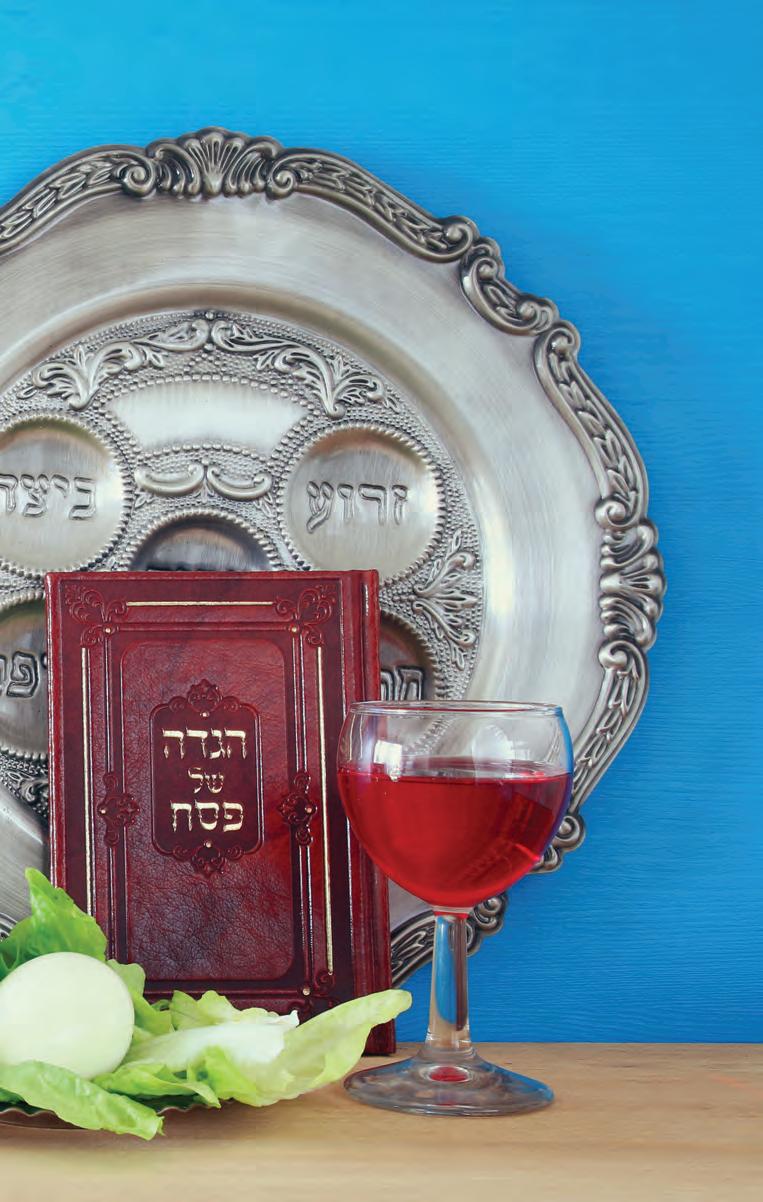
A: Acceptance. When I think back to me at 13, and everything that seemed impor-

from the film’s own introductory press conference with Mirren, director Guy Nattiv and other stars from the film. The headlines that have emerged from it have been dominated by the film’s place in the “Jewface” debate, about who should play Jewish characters on screen. Mirren is not Israeli or Jewish.
“Let’s say that we’re making a movie about Jesus Christ. Who’s going to play him?” Mirren’s co-star Lior Ashkenazi stepped in to answer in response to a journalist, eliciting laughter from the press corps.
The film is framed by Meir’s testimony to the Agranat Commission, which investigated the lead-up to the war. As the film shows through flashbacks, Meir appears to have not acted quickly enough on Mossad intelligence about a possible attack from Egyptian and Syrian forces. Israeli forces were surprised on the holiday and initially lost ground; both sides lost thousands of troops, and the war is seen as a major trauma in Israeli history — the moment when the state’s conception of its military superiority over its Arab neighbors was shattered. The film is claustrophobic, shot mostly indoors — in bunkers, hospital rooms and government offices — and offers an apt visual encapsulation of the loss the war would bring.
Though Meir has historically been lionized as a tough female hero in the United States and in Jewish communities around the world (even non-Jewish soldiers in Ukraine took inspiration from her in the early days of the Russian invasion last year), her legacy is more complicated in Israel and the Palestinian territories. In addition to being associated with See Golda Meir biopic page A15
Please let the Jewish Press know in advance when you are leaving and when you are returning. Sometimes several papers are sent to your “old” address before we are notified by the Post Office. Every time they return a paper to us, you miss the Jewish Press and we are charged! Please call us at 402.334.6448 or email us at jpress@jewishomaha.org.
The
tant then versus what seems important now, it all centers around accepting people for who they are.
Q: How much of being a good leader is intentional, and how much is instinct?
A: It’s intention, instinct, and experience. I remember my first few years as Assistant Director I thought “I tried it this way, then I tried it that way, and by year three I’ll have a chance to try it again.” Leadership is also about building a strong team and surrounding yourself with people who are on board with you.
Q: In your opinion, how have women’s roles in the Jewish community changed from your earliest recollection to today?
A: My earliest recollection of women’s roles would have to be my mom’s role as Sisterhood president at our synagogue. That role was largely about events and programming that supported the synagogue. Fast forward to today and you see women leading policy changes, leading synagogues, Federations, etc. The role has certainly become more encompassing.

LEIGH CHAVES
Even with juggling her four young children, volunteering at their schools, participating on committees at Beth El Synagogue and Temple Israel, previously chairing the Federation’s campaign, chairing the Ben Gurion Society for 2024, participating in the Emerge program, or working with the Omaha Jewish Alumni Association Board, if you need help from Jess Cohn, she’ll be there.
“If you ask me to do it, I generally do it,” Jess said. “I show up, that’s the biggest part.”
Jess grew up in Omaha, though not in the Jewish community. As a convert, she found mentorship and guidance through Rabbi Aryeh Azriel and Omaha’s Jewish women, notably Rosie Zweiback and Louri Sullivan.
“Rosie brought me to the table, opened up her home, and was so warm and loving,” she said. “I’ve tried to emulate that, I’d like to do the same to welcome others.”
Since working with Sullivan on a committee at Temple Israel, Jess became more involved and began taking on other projects in the Jewish community.
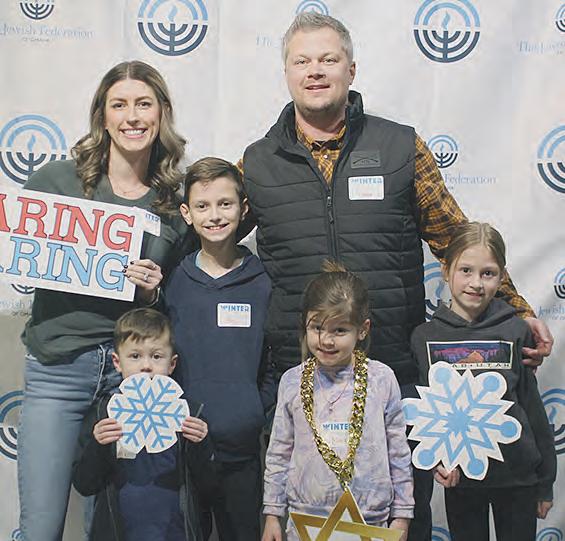
“That’s what women’s leadership looks like in Omaha –mentoring each other and working together,” Jess said.
Also making our Omaha Jewish community unique is the opportunity to be involved and have a voice. Jess said she feels
there’s no barrier in Omaha to lead events, participate on committees, and make a difference.

“If you want to be a part of it, you just have to show up,” she said, “Omaha is small enough to make a big difference.”

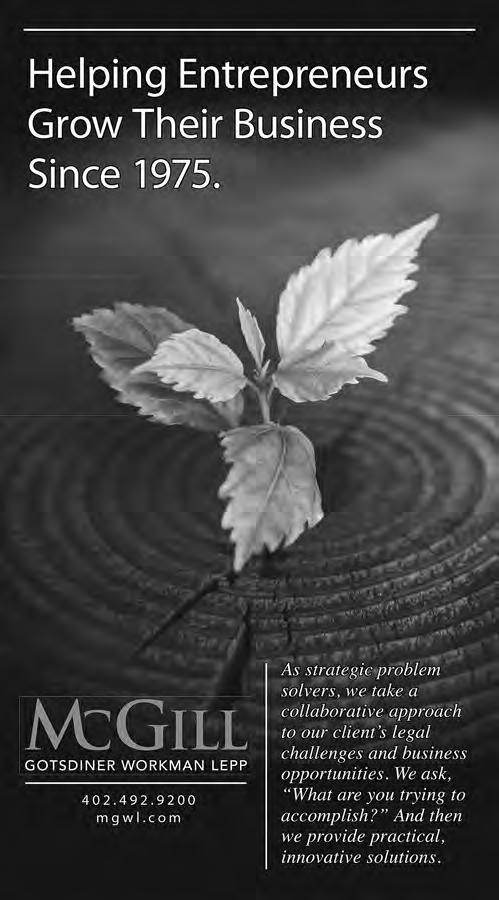
And making a big difference is exactly what Jess does. In addition to her volunteer commitments, Jess said she loves to bring people together through hosting families in her home and in the community.
“I want to be welcoming to all people and invite them in,” she said. “That’s always been my main goal – to include people who feel like they’re on the periphery, to have more people say yes.”
That’s the way Jess leads, by saying ‘yes’. As a mother, and having a great example from her own, Jess said she hopes her kids see that it’s important to give back to their community and to help others.
“I hope my children see it from both a Jewish lens and a human lens. There’s a big world out there and it’s so important to give back,” Jess said. “I hope to be a source of good and light and that my kids in turn can learn to do good.”
Although not wanting to be in the limelight, Jess is definitely a source of good and light in Omaha, and the Jewish community is grateful to have her.
“I’m just honored to have been included on this list with such amazing women,” she said. “It’s really humbling.”
Continued from page A12 tefillah [prayer] service or a partnership minyan service, we’ve seen a lot more... girls read, in part or the entire, Megillat Esther,” Price said.
Although traditional Jewish law, or halacha, obligates women to hear the Megillah on par with men, many more traditionalist Orthodox communities still do not hold women’s Megillah readings. Some Orthodox rabbis may believe that women need to hear the scroll chanted but should not themselves chant the scroll. Another objection stems from the idea that synagogues should gather the largest audience possible to hear the Megillah, rather than fragment the crowd into smaller readings.
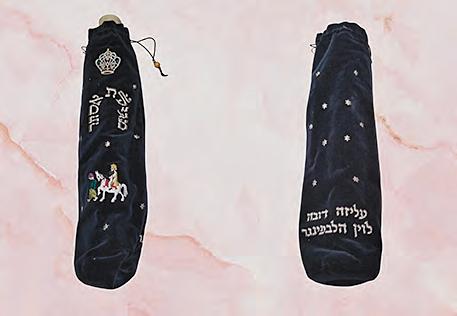
Still others worry that a women’s Megillah reading will act as a sort of gateway to non-Orthodox practice more broadly. Gender egalitarianism is one of the principal dividing lines between Orthodoxy and more liberal Jewish movements, and some Orthodox rabbis say women who organize a Megillah reading of their own may then venture into chanting Torah or leading public prayers, which women in the vast majority of Orthodox communities are not allowed to perform.
“The fear is, if we give a little, it’s a slippery slope and once we allow women’s Megillah readings people intentionally will manipulate or maybe even accidentally just get confused,” said Rabbi Dovid Gottlieb, an Israeli Orthodox rabbi formerly based in Baltimore, describing some rabbis’ concerns regarding women’s Megillah readings in a lecture last month surveying a range of perspectives on the topic. “If women’s Megillah readings are OK, then women’s Torah reading is OK, then women
rabbis are OK and before you know it, I don’t know what.”


In recent years, a growing number of Orthodox women rabbinic leaders have weighed in on the question as well. Maharat Ruth Friedman, a spiritual leader at the Orthodox congregation Ohev Sholom: The National Synagogue in Washington, D.C., said women reading Megillah may feel more acceptable to Orthodox communities that see women’s performance of other rituals as a step too far away from Orthodoxy.
“It is kind of the one semikosher or kosher thing that women in more [religiously] right-wing communities can do,” Friedman said. “It doesn’t necessarily mean that the rabbis allow them to meet in the synagogue space, but at least that there is a contingent of women who will go to them.”
In some communities, women’s Megillah readings might take place in private homes or in other spaces outside the synagogue. Some Orthodox rabbis permit women to read the Megillah for other women, but prohibit it in front of men.
The idea of feminist Megillah readings has become so mainstream that it was a storyline on “Shababnikim,” an Israeli comedy series about renegade haredi Orthodox yeshiva students. One of them is alarmed by his fiancee’s determination to read the Megillah for a group of women and barges in to stop the reading. He later decides that despite his discomfort he should be more flexible in the future, within the constraints of Orthodox law, to make the woman he loves feel respected.
At the Hebrew Institute of Riverdale, a liberal Orthodox synagogue in New York City, women have been reading Megillah

See Orthodox women read Torah page A15

Continued from page A13
\the trauma of the war for many Jewish Israelis, she is remembered as an inveterate enemy by Palestinians.
In recent years, the representation of Meir has shifted more favorably in Israel, said Meron Medzini, Meir’s former press secretary and one of her biographers. He said that historians have begun to view her favorably in comparison to some of the political leaders who followed her.
“I consider the film [‘Golda’] part of this effort to rehabilitate her name,” he told the Jewish Telegraphic Agency. “I think she is now gaining her rightful place in the history.”
Golda fits into Medzini’s narrative by emphasizing the intractability and pride of her Cabinet ministers as the prime reasons for Israel’s surprise. It affirms Meir’s honor by portraying her as attempting to protect the ministers from criticism — all men — and to promote national unity.
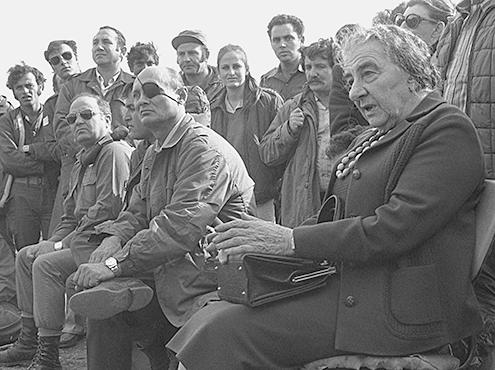
At the press conference, Nattiv gave the briefest of nods to Meir’s complex legacy but like Medzini compared her to Israel’s current slate of leaders, who he reserved brief criticism for.
“Golda is not a super clean character in this movie,” said Nattiv, who is best known for directing Skin, a 2018 film about a neo-Nazi. “She had her faults. She made mistakes. And she took responsibility, which leaders are not doing today.”
Meir has long enjoyed a kind of star status in the United States. She was interviewed by Barbra Streisand in 1978, close to the Israeli leader’s death from cancer, for a TV special on Israel’s 30th anniversary.
“She clearly is the great-grandmother of the Jewish people [in the special] and Streisand is very reverential toward her,” Tony Shaw, a history professor at the University of Hertfordshire and the author of Hollywood and Israel: A History, said about the Streisand interview. “She just comes across as very humble, slightly out-of-date, out-of-time.”
“Of course, it’s very different from what we now know Golda
Meir was really like,” he added, referring to her strong character and political pragmatism, which the film seeks to convey.
Since William Gibson’s critically-panned 1977 play also titled Golda, there have been a number of representations of Meir. Most famous among them is Ingrid Bergman’s final performance in Golda Meir, a four-hourlong television biopic from 1982. That production “was very much in keeping with Hollywood’s treatment of Israel in that period,” said Shaw, “which was very sympathetic towards Golda Meir, towards Israel and the troubles it was having in the first 30 years of its life.” More recently, Meir appears in Steven Spielberg’s more ambivalent 2005 film Munich, in which she helps to recruit the film’s protagonist to track down the figures behind the 1972 Munich Olympics attacks.
Nattiv’s work, which has received mixed early reviews, focuses on the war as reflected in Meir’s character, forgoing engagement with broader politics or history.
“My inspiration was Das Boot, in the way that she is in the trenches,” said Nattiv, referencing the revered World War II movie from 1981 set in a German U-boat. “She is very alone in the mayhem of war around these men.”
“This is the Vietnam of Israel,” he explained. “It is a very tough and hard look at the war and every soldier that died... Golda takes it to her heart.”
Despite the “Jewface” questioning, Nattiv compared Mirren to an “aunt” figure who, for him, had the “Jewish chops to portray Golda.” Mirren explained to the AFP that she has long felt a connection to Israel and to Meir, especially after a stay on a kibbutz in 1967, not long after the Six-Day War, with a Jewish boyfriend.
“She was at her happiest on the kibbutz actually,” Mirren said. “Their idealism, their dream of the perfect world. And I did experience that which was great.”
Continued from page A14
for decades. Founding Rabbi Avi Weiss wrote a Jewish legal analysis explaining why women are permitted to read the scroll in 1998.
“I personally am someone who advocates, and in our synagogue community looks to expand women’s roles and give more opportunities for women,” said the synagogue’s current senior rabbi, Steven Exler.
Lewin is also watching the practice expand at her synagogue, Washington, D.C.’s Kesher Israel Congregation, where women have read from the Megillah for nearly three decades. This year, she’s reading the fewest chapters of the Megillah she has ever read. She usually reads half of the scroll, including a difficult passage in the ninth chapter. But for this week’s women’s reading at her synagogue, a new volunteer signed up to chant the ninth chapter.
Still, despite her pioneering reading at age 12, and her decades of chanting, Lewin has encountered the Orthodox community’s ambivalence around women and Megillah firsthand. For many years, she borrowed her father’s scroll when Purim came around. But about eight years ago, Lewin asked him for her own scroll as a gift, which can cost upwards of $1,800.
Lewin’s father traveled to Israel to find a scribe to commission the Megillah. But he wasn’t comfortable telling the scribe the Megillah would go to a woman, and instead said it was a gift for his son-in-law.
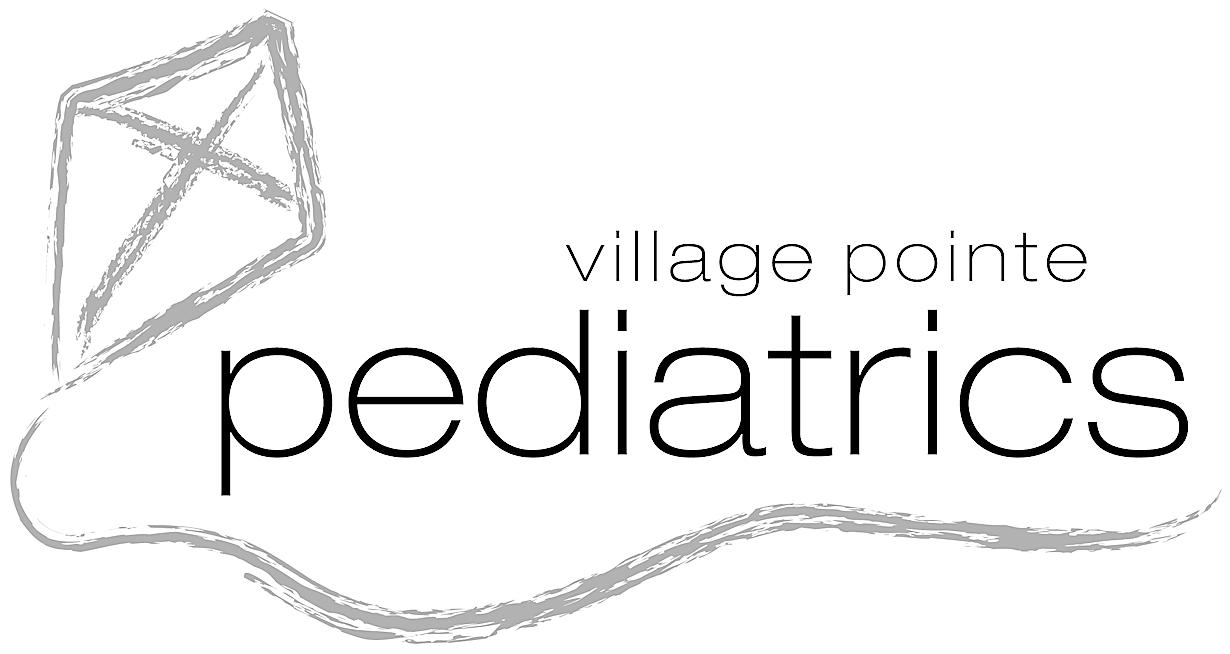
Years later, Lewin was at a wedding where she met the scribe who wrote her treasured Megillah, and revealed to him that the scroll belonged to her.
“He was thrilled,” Lewin said. “I think it was his individual personality. There are some individuals who are very supportive of the increase in opportunity for women, that women are becoming much more learned in terms of Jewish law.”
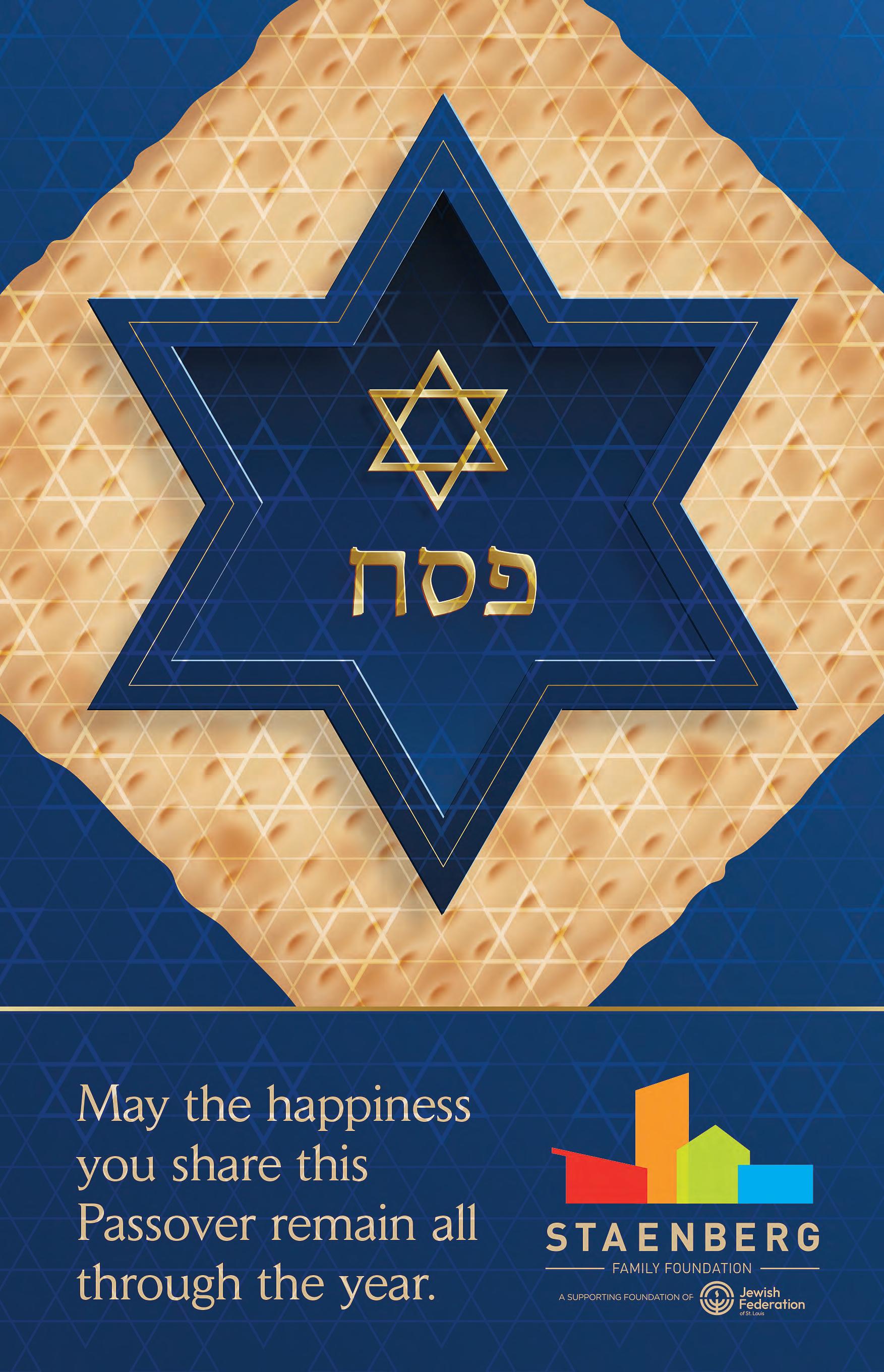
Jewish Press Editor

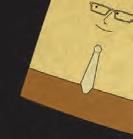

n Omaha, Emerge saw the light of day in 2021. It is an initiative that brought 23 women from Federations across North America together virtually each month between February and December of that year. The program culminated with a celebration at the 2022 Lion of Judah Conference in Phoenix, AZ. Selected to participate on Omaha’s behalf were Jess Cohn, Ally Freeman, Ellie Novak and Hillary Rubesin.
“The Emerge criteria asked for women who had already had a leadership role in the Jewish Federation of Omaha and who have potential for more,” Louri Sullivan said at the time. “The beauty of this group is really what they don’t have in common. Only one is from and grew up in the Omaha Jewish community, the other three either moved here from somewhere else or converted to Judaism as adults. They are a beautiful cross-section of what upcoming Jewish leaders in our community look like. We are blessed to have these women in our community. All four of them have been involved this year with the FRD division, were either directly involved with the Annual Campaign or worked on strategic planning.”
Research shows that women contribute significantly to philanthropy with their time, treasure and talent, and they have the capacity to do more. Reaching more women under the age of 45 helps the JFNA create an essential pipeline of female philanthropists and leaders in local communities and the collective Federation system.

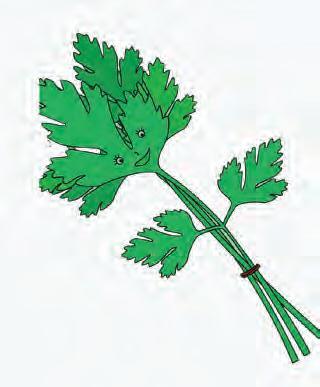
“The Lion of Judah conference was a great op-

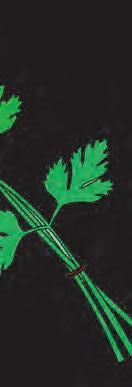
portunity to learn about Jewish women’s philanthropy more broadly,” Jess Cohn said. “I enjoyed connecting with the Omaha Lions and my Emerge peers. After we spent a year meeting, learning and discussing philanthropy and making an impact in our community, coming together and seeing it in action felt like the natural culmination of the Emerge program.”
“Twenty-four years ago, during my confirmation


year, I asked my rabbi what exactly we were confirming,” Hillary Rubesin said. “He replied, “You are confirming your lifelong commitment to wrestling with important questions.” I don’t have any answers yet, but I do know this: I am incredibly grateful and honored I was given the chance to attend this conference and to grapple with these questions.”
See Emerging Lions page B3
MATZAH
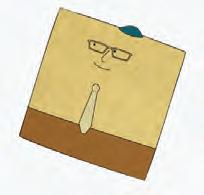

He knows the world isn't flat. It's just that he's always reaching across it. Supporting, sustaining, invigorating Jewish lives everywhere on the planet.



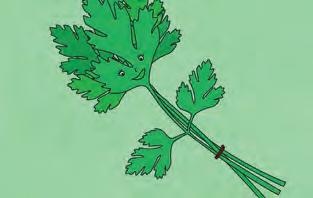
essential flavor. But as a team they're unstoppable. Overcoming every obstacle. Fulfilling any need on the table.

DEBBIE DENENBERG
1. Perform acts of loving kindness
“This is the bread of affliction that our fathers ate in the land of Egypt. Whoever is hungry, let him come and eat!
Whoever is needy, let him come and celebrate Passover!”
We begin our Seder by caring for the hungry and the needy—the seder is rooted in chesed, loving-kindness. Keep your Jewish radar on for those around you who need help.
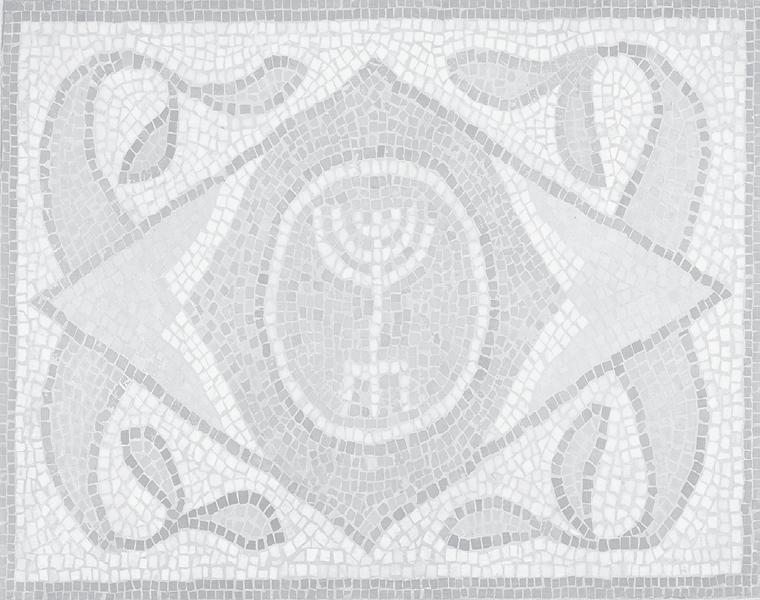
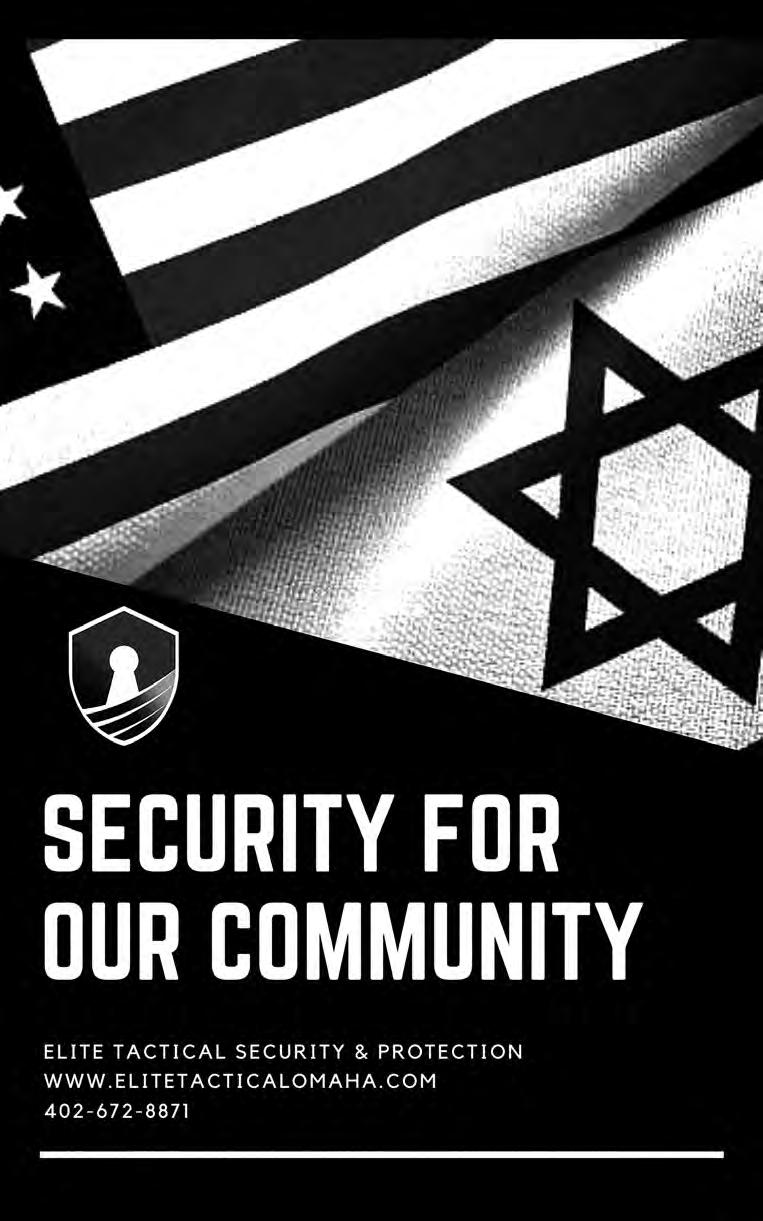
Performing acts of chesed will forge a path to your own happiness.
2. SUCK at things
At first, the Jewish people sucked at being free. We complained to Moshe, “What shall we drink?” Some rebelled against Moshe. And when Moshe was up on Mt. Sinai, we built a golden calf.
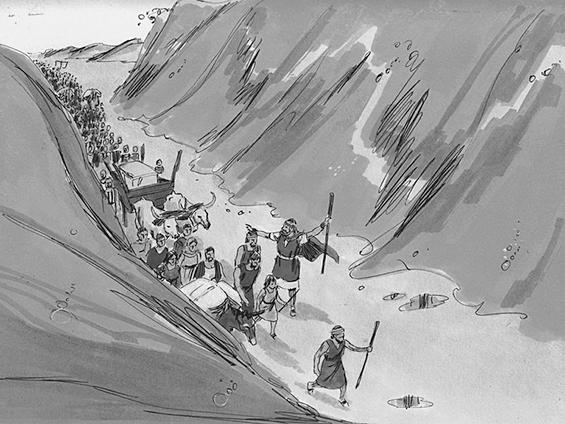
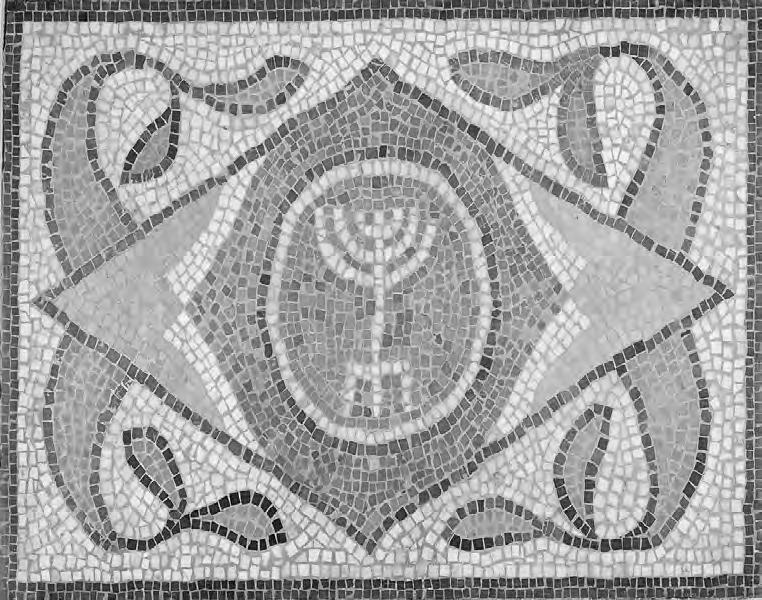
And we had just seen G-d send ten plagues. Geez. Short memories!
However, we went on to become a great and mighty nation, just like G-d promised Abraham. So we totally got the hang of it.
You will too. But you must suck first. Don’t sit on the sidelines and not play for fear of sucking. Get out there and suck at as many new things as you can.
Continued from page B1
Hillary admits she was nervous about going to Phoenix.
“This would be my first time away from my 8-month-old, Max,” she said. “More nervewracking than my new-mom-guilt, I wasn’t confident I would ‘fit in’ with the other conference attendees. I am not a Lion of Judah. I was at the conference because three of my peers and I had qualified for free conference and travel fees through the JFNA women’s leadership program, Emerge, along with an additional grant from the Goldstein Foundation.”
The conference was informative and motivating, Hillary said.
3. Going out is HARD. You can DO it! We left Egypt with the shirts on our back and bread that had no time to rise. We were poor, tired, oppressed, and mourning for the children killed by Pharaoh. We walked into See Teen takeaways from Passover page B3
“We heard from leaders from across the globe, the majority of whom were Jewish women. We received updates on domestic and international programming funded by the Lions. We engaged in poignant conversations about how to deepen Jewish global, community, and familial relationships. We listened to speakers working with refugees and within mental healthcare—two causes I care deeply about. We learned that Katie Couric is Jewish and from Omaha! Who knew?”
The conference is behind us, but Emerge will continue.
“There are so many commonalities women
have that just allow this to be a deeper, richer, experience that we can appreciate together,” Ally Freeman said. “Whether it’s navigating motherhood, or as wives and daughters, or working moms; we all have complex, busy lives. Getting to do this with other women I can relate to, learn from and build friendships with is exciting. I think women have a unique, important point of view when it comes to philanthropy and leadership, and I hope we continue to elevate that in our community. And I especially love that there is a local component to this program and that I get to participate with three other engaged, involved friends from Omaha, while also meeting other women from across the country. It’s something that is unique to be able to do this specific time in our lives as a result of the pandemic.”
“Women’s Philanthropy speaks to women who are dedicated to advancing causes and initiatives that they are passionate about,” Jess Cohn said. “Although philanthropy is often synonymous with donating financially, to me it also means donating your time, skills and passions. In Omaha there are amazing dynamic women involved in philanthropy. I am excited to learn from them through the mentorship portion of the Emerge cohort.”

LEIGH CHAVES
When I met with Caryn Scheer (and her sweet dog, Charley!) our conversation went from living Jewishly, to performing arts, to family, etc.
There was one recurring theme: children. Whether volunteering at Children’s Hospital, teaching at Beth El Synagogue, or educating her own children, much of Caryn’s leadership in the community involves kids.
“I’m passionate about kids and children in general, and also education,” Caryn said. “It is a pleasure serving as the Beth El Education Chair, and working alongside Mark Kelln to provide an excellent program for the students at Beth El.”
While not originally from Omaha, the Scheer family adapted quickly upon moving here from Chicago. Caryn said her favorite thing about Omaha is the Jewish community.
Caryn described a feeling of comfort in the Omaha Jewish community, which she says is not necessarily the case everywhere.
“The people of Omaha are very kind,” she said. “When we moved here, we were amazed at how the synagogues work so well together, inviting each other to programs. This is not seen in most other parts of the country.”Whether it’s the synagogues, Chabad, the JCC, or the Federation, Caryn said she loves how the Omaha Jewish organizations bring people together. She said she feels Omaha is a unique community of people that provides many opportunities to make change happen.
Making change happen is something Caryn has done in Omaha by being on the Jewish Press board, the Beth El execu-
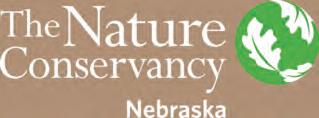

tive board, serving as the Education Chair at Beth El, and teaching, amongst other projects. She created “Our Shabbat Tables” as a way to encourage the community to share Shabbat meals with others in the community. To Caryn, being a leader first means being inclusive of everybody.
“It’s important to keep everyone’s differences in mind,” she said. “Remember to have good morals and be an ethical person. We know how it feels being a minority, and we can take this feeling and emphasize with other minorities.”
Through her community leadership, Caryn said she and husband Marc, who is equally active, hope to set an example for her three children. Caryn said her husband Marc, Even just in their early teen years, the Scheer children already have done much in the community, both Jewish and otherwise.
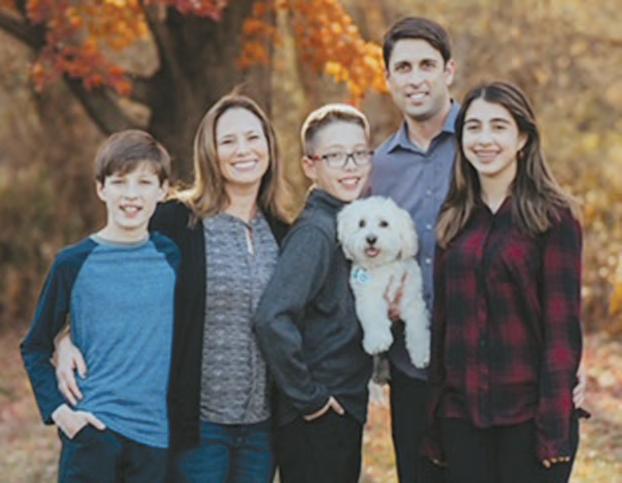

“We want our children to be involved, to focus on doing mitzvot, and to understand that it’s a Jewish value to help others. We like to do things such as volunteer at the Food Bank as a family, care for animals at the Nebraska Humane Society, or fill the food pantry at Beth El.” she said.
Though not wanting to be in the limelight and draw attention to herself, Caryn has nonetheless made an impact in our community.
“Anyone can learn to become a leader; it’s the desire to make a change that’s three-fourths of it,” she said. “Be involved yourself and involve those around you – if we keep doing that, the Jewish community will remain strong.”



Continued from page B2
the desert. We were scared and uncertain.
But we did it. We came into our land. We made the desert bloom. Our tradition teaches that Hashem provides us the solutions before He presents the issues. No one says it will be easy. But you can do it.
4. Pack your tambourines. Optimism is in your DNA.

When the Jews reached the shores in safety, Miriam and the women danced with their tambourines.
Where on earth did they get tambourines? They PACKED them. They had faith that no matter how bleak the present,
there would be better times. They were right.
The defining, encompassing characteristic of the Jewish soul is hope. Our national anthem, Hatikvah, means “the hope”. The message of Passover is optimism and hope. Pack your tambourines. You will need them.
5. Have the courage to do the right thing, even if you are not popular for it.
Nachshon saw the group doing one thing. He knew he needed to do another.
When Israel stood facing the Sea of Reeds, and the command See Teen takaeaways page B5

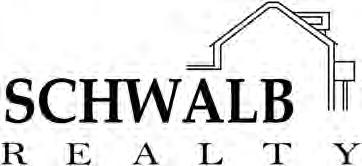
Passover is coming and with it comes changes in diet and routine. By now, most adults and older children understand what this entails, but for younger kids the sudden loss of favorite foods, especially for the pickiest of eaters, can make this a trying week! Here are a few fun ways to get your younger kids excited and ready for Passover.
1. BUILD WITH YOUR FOOD
Matzo is the hallmark staple of the holiday and provides a perfect medium for crafting a temporary dwelling to recall our ancestors’ time wandering the desert– (think gingerbread house, but with Matzo!) As you gather items from the kitchen and build with matzo together, explain why we eat unleavened bread over Passover. Have your child help make (and try) some sticky Sephardic style charoset (see My Favorite Charoset recipe page B11) and then use it to fulfill its symbolic meaning as the mortar. Discuss what this food means with your child. Decorate your matzo house with Passover candies, dried fruits and nuts and then use it as a creative decoration for your Seder table. Who says you can’t play with your food just a little?! The more familiar youngsters are with foods that may be new to them, the more likely they are to try (and maybe even like!) them!
Jeweled/tissue paper cups Credit: https: //creativecynchronicity.com/passover-eli jah-miriam-and-kiddush-cups/ and below: Matzo house Credit: https://www.epicuri ous.com/holidays-events/make-your-ownmatzoh-house-article.
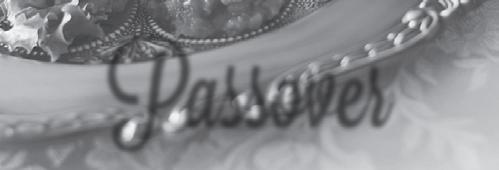

GARY AND KAREN JAVITCH
THE

If
If you are interested, please send your resume and cover letter to avandekamp@jewishomaha.org.

WE CAN’T WAIT TO MEET YOU!
2. COLORFUL CUPS
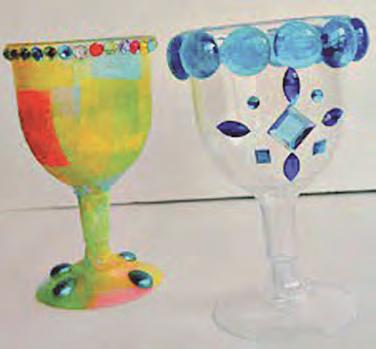
Pick up some crafting thread or thin yarn in various colors, -OR- alternatively, some colorful jewels or tissue paper squares, along with a jar of decoupage or Elmer’s glue, a paint brush and a couple inexpensive wineglasses at your local thrift or dollar store and have your child create a symbolic cup for Elijah. Pour some of the glue into a small Tupperware. If using string, cut lengths, dip into adhesive, squeeze off excess and wrap even layers around the outside of the glass until covered. If opting for tissue paper and/or jewels, paint the outside of the glass with the adhesive and add decor. Allow to dry and use as decoration for years to come. Use this craft as an opportunity to explain the significance of Elijah, blessings and why we have an untouched cup on the table for him.
3. BURN THE CHAMETZ TOGETHER
While younger kids always have fun searching for foil wrapped packages of hidden chametz throughout the house in the evening, the highlight of this tradition for us was burning the chametz the next day as we prepared to usher in the Chag. When celebrating at home, we use our small outdoor fire pit. When celebrating in Israel, we would accompany their grandfather, Z”L, to one of the many neighborhood burn piles. Rightfully, so much focus leading up to the holiday is on the cleaning and preparing for the seder, but including your kids in more holiday customs and preparations is an important way to create memories and provide guidance for them. Use this time to teach them why we are burning the chametz and
the blessing to say as they do. There is just something exciting, unusual and special about having a small fire in the morning- just be sure to use caution and have a hose near by!
4.
When my eldest child was around six years old, he and his younger brother came home from their neighbor friend’s home excited about an upcoming scavenger hunt for eggs that would contain candies and treasures. I explained that egg hunts were not a Passover tradition, but an Easter tradition- something they were completely unfamiliar with. They pointed out that there was an egg, in fact, on the seder plate. So, in a moment of epiphany and compromise, I exclaimed that we could go on our very own plague hunt instead, which placated them, because really, they just wanted to hunt treasure. At that time, I found nothing online about an activity like this, so I had to get creative. Today if you google ‘Passover plague hunt’, there are many ideas floating around and even kits available to purchase which means others have been in this situation and came up with this idea as well (I should have patented it). For this activity, you’ll need to prepare things ahead of time, but if you have small children, you will likely have many useful items for this activity around the house- or you can order a kit. Gather the following ‘plague’ supplies or similar things and come up with simple clues and hiding places appropriate for your own home’s set up.
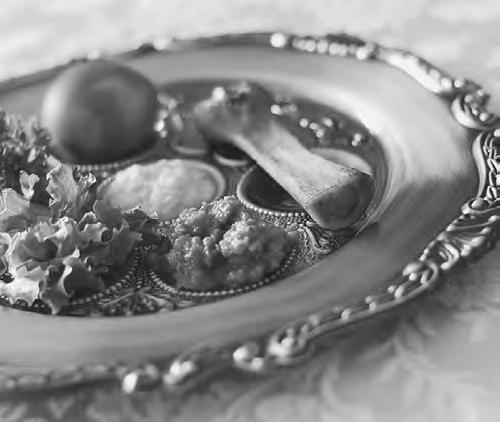
Blood: Ice cube tray and grape juice - hidden in freezer.
Frogs: Rubber bath toys or similar - hidden in a bathtub.
Lice: Draw and cut out small black bugs -hidden on a brush left on a bathroom counter.
Flies: Rubber flies - hidden/taped to a window.
Livestock disease: A small farm playset with the animals laying down.
Boils: Small rubber pop up domes on an emoji face drawing.
Hail: Styrofoam balls or similar.
Locusts: Small plastic/ finger puppet grasshoppers -hidden in a potted plant.
Darkness: This was the final stop on our “plague hunt”. We trekked out and around the house at night with no flashlight from the back door to the front door where a red scarf was draped above. The prizes were boxes of chocolate Matzo and kosher for Passover goodies on the stoop.
Death: As they were young, we kept the discussion age appropriate and didn’t “hunt” for death. Instead, we discussed how the holiday got its name, how the Jews were literally ‘passed over’ when the final plague, death, swept over all of Egypt. It was only after this, the most terrible of the 10 plagues, that Pharoah finally allowed Moses to lead the Jews out of Egypt.
Wishing you and your family a fun, happy and kosher Passover!
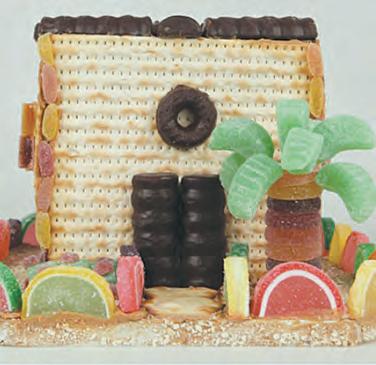
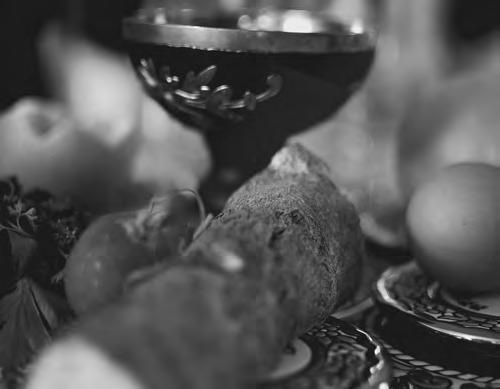
Among the Israeli government’s proposed new legislative measures is a bill having to do with bringing in hametz (leavened goods) to hospitals on Passover. The original bill banned all hametz except for produce and store-bought “Kosher for Passover” products, whereas the revised bill gives greater control to hospital directors to set hametz policy. The bill can be seen as a response to a 2020 Supreme Court ruling that said that hospitals cannot ban patients and visitors from entering their premises with hametz during the holiday. Last year, in advance of the holiday, Minister of Health Nitzan Horowitz sent a letter to hospital directors reminding them of the Court’s ruling (this, after a report in the media that said that Hadassah Hospital was looking for ways to bypass the ruling). Horowitz’s letter led to the resignation of MK Idit Silman from Prime Minister Bennett’s governing coalition, which led in turn to new elections and to the current government. Yes, hametz is serious business in Israel.
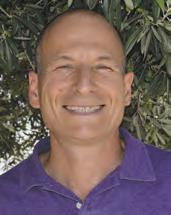 WEINBERGER
WEINBERGER
served at Israeli hospitals during our spring holiday is food that is strictly Kosher for Passover. The proposed law, therefore, concerns visitors who wish to bring hametz into a hospital. But now you’ll ask: Why make a big deal about someone else’s hametz? After all, if the hametz is not yours then it typically poses no religious problem for you (which is why there is a practice of selling one’s hametz before the holiday). Surely, we are not meant to assume that after their covert operation, hametz smugglers will then do something like switch Kosher for Passover croutons with the real thing for unsuspecting religiously observant soup-loving hospital patients? No, of course not. But it does seem that in Israel the very sight of hametz is injurious to a religious person’s feelings. This principle goes back to a 1986 Israeli law that proscribes the public sale of hametz--defined as bread, rolls, pita, and products made from flour (there are a number of exceptions to the law, chiefly dealing with areas in Israel where a majority of residents are not Jewish). In explaining the need for the law, those who proposed it cited growing instances of the public sale of hametz and that this “hurts the feelings of a majority of the religious public.”
Please note that it is taken for granted that the only food
Clearly, the 1986 Hametz Law should not be conflated See Teddy Weinberger page B5
JEWISH PRESS IS LOOKING FOR A SUMMER INTERN.
you are currently attending college, are between the ages of 18 and 24, and want to become more involved in our community, this is your chance.
Continued from page B4 with Jewish law, else no one could properly keep Passover in the diaspora--where there is plenty of hametz available in public spaces. My hunch is that this seems to be one of those areas relating to religion and state where Israelis want to say: In our country we can pass a law like this; in our country we have the luxury of being sensitive to the sight of hametz. By way of explicating my hunch, let me take you back to the late 1960s, to Harrison Elementary School in Omaha, Nebraska. It’s Passover and an eight-year-old girl named Sarah Jane Ross has finished her school lunch. Only she hasn’t in fact finished what she was given—she has not touched her mac and cheese. As Sarah makes to clear her tray into the garbage, the sixth-grade monitors spot the infraction (children were required to eat all that they were given), and Sarah is sent back to finish her food. Sarah waited patiently at her table, thinking that an adult would come around to save her. The person who came by was the principal, Mrs. Emmert. Sarah explained to her: “I can’t eat the noodles because it’s the Passover holiday.” Mrs. Emmert told Sarah that she had to finish her plate, and she stood over the crying little girl making sure that she did so.
I think of Israel’s hametz law as a reaction to Mrs. Emmert. The State of Israel in effect tells that crying little girl: Here, you will be respected; here, not only will there be no need for you to eat noodles on Passover but no one will even be able to buy noodles during the holiday--we are that sensitive to you.
As far as the current brouhaha over hametz at Israeli hospitals, former Minister of Education Rabbi Shai Piron has a simple solution: Hospitals should designate a comfortable, pleasant room where all those who wish to eat hametz can come and do so. As Israel nears its 75th anniversary, laws that seem more appropriate as reactions to the Mrs. Emmerts of the world need to give way to the vibrant and diverse actuality of Israel’s population. It would be wonderful if Rabbi Piron’s proposal would be adopted. Happy Passover.
Teddy Weinberger, Ph.D., made aliyah with his wife, former Omahan Sarah Jane Ross, and their five children, Nathan, Rebecca, Ruthie, Ezra, and Elie, all of whom are veterans of the Israeli Defense Forces; Weinberger can be reached at weinross@gmail.com
Continued from page B3 was given to move forward, each of the tribes hesitated, saying, “We do not want to be the first to jump into the sea.” Nachshon saw what was happening— and jumped into the sea. He caused the great miracle of the sea splitting. Young adults might have to find the courage to say “don’t treat her that way” or “I don’t want to try that.” Remember your relative Nachshon.
6. Be proud of who you are. Hashem didn’t need an X of blood on the doors of Jewish homes to know where the Jews lived. We needed to put it there. We needed to say, “I am in! I am part of this holy community! Even at personal risk, I want to stand up and be counted.”
The Jewish people represent 0.2% of the world population yet 22% of the Nobel Prizes. You are part of something unique and special. Learn more about it. Treasure it.

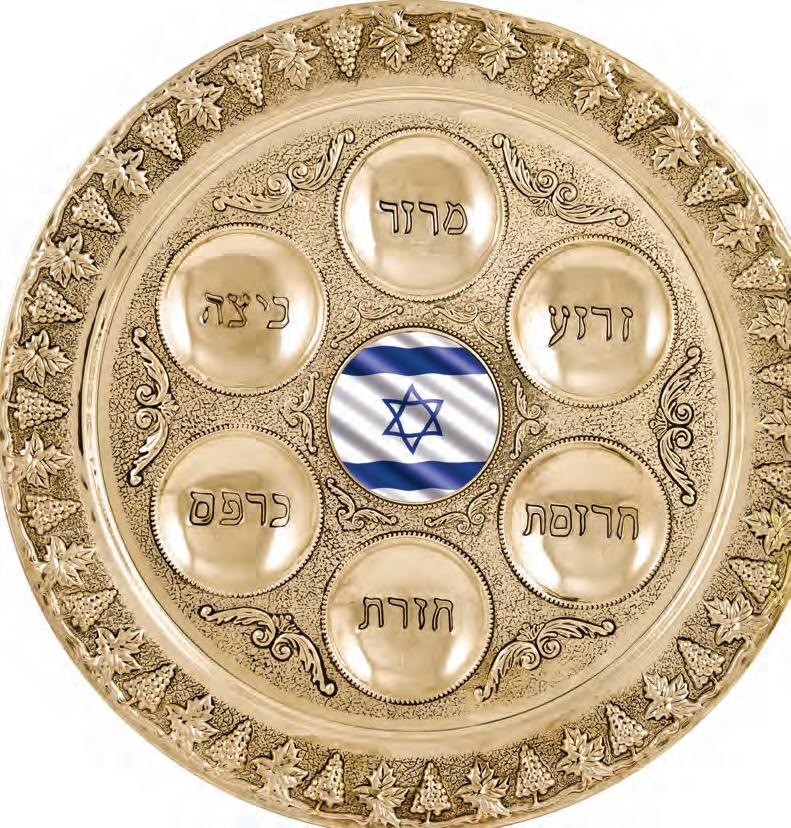
7. Stand on the shoulders of giants.
“In every generation let each person look on himself as if he came forth from Egypt.” You are part of our history. You have inherited every bit of strength, courage, optimism, light and grit that your ancestors demonstrated!
You are not alone. The Jewish people left Egypt together, received the Torah together, built their nation together. We
are part of a big family. This family will look out for you.
8. Sing and dance!
The seder ends in praise of Hashem, in song. Squeeze every sweet drop of joy out of life. It is in our nature to sing and dance. To quote Dear Evan Hansen: “Dance like all the rest of the world isn’t there.”

9. Be grateful!
Create your own Dayenu! We have so
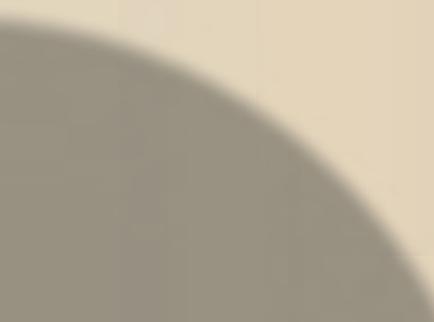



much to be grateful for. It’s enough! 10. Have faith.
Underlying the Passover story, our hope, optimism and joyfulness is faith. Have faith in Hashem—He is the leader of the Jewish people and demands study and engagement. Have faith in yourself, in your community. Have faith that darker times lead to better ones. Have faith that you can overcome any challenge. Have faith.
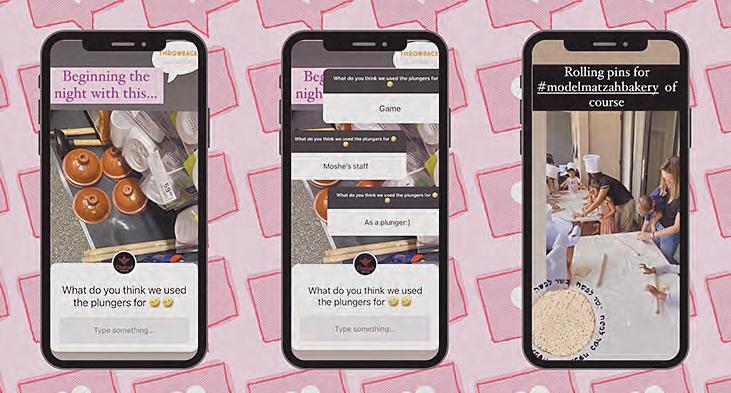 JACKIE HAJDENBERG JTA
JACKIE HAJDENBERG JTA
The first post on Rivky Hertzel’s Instagram account — which she and her husband signed up for last year ahead of a planned move to Zambia — depicts a classic Chabad activity: a mock matzah bake for children that the couple organized in Lusaka, the country’s capital, ahead of last Passover.
But like many Instagram posts, the cheerful photo didn’t exactly tell the whole story: The kids’ chef hats were made out of paper, their aprons were made out of garbage bags, and their rolling pins were actually the detached handles of toilet plungers — wrapped in Saran Wrap — that Hertzel picked up on the fly at a local store when she realized she was short on baking supplies.
Only after the bake was done did Hertzel, 22, reveal the origins of the “rolling pins.” Much to her relief, the kids’ parents had a good laugh about it.
And months later, in a “Throwback Thursday” post, Hertzel shared a photo of the deconstructed toilet plungers themselves. The red ends of the plungers sat in rows next to the separated handles.
“What do you think we used the plungers for?” she wrote. One viewer responded, “Moshe’s staff.” Another wrote, “As a plunger:).” She then revealed that they were rolling pins,
to her followers’ delight.
“I have friends in Alaska and in New York and anywhere else, and I think they were excited and kind of inspired by that,” Hertzel told the Jewish Telegraphic Agency. “When you’re living in New York, what are you thinking about Jewish kids in Africa? No one’s thinking about it. They were inspired by the lengths that we were willing to go to make a special Jewish experience for kids.”
Hertzel’s experience is an example of the in-




creasingly significant and versatile role Instagram is playing in the lives of Chabad’s women emissaries, known as shluchos. Nearly 4,000 shluchos gathered this past weekend for a conference that concluded with a massive gala dinner at a New Jersey convention center. But during the rest of the year, many of the emissaries live without a robust local Orthodox support system, often taking the lead in organizing Jewish activities in far-flung

See Chabad women on Instagram page B8
JTA April 19, 1976
An unusual heat wave swept through the country on the eve and during the first day of Passover. The accompanying sand storms and near zero visibility marred the holiday festivities of picnickers and forced the suspension of inland air traffic. The airports at Eilat and Tel Aviv were closed down for several hours and pilots encountered difficulties landing and taking off at Ben Gurion Airport. Hundreds of cars on their way to Eilat and Sharm el-Sheikh crawled along the highway bumper to bumper because the sand storm made the road invisible. Despite this, there were no traffic accidents in the area, but many tourists were prevented from reaching Sharm el-Sheikh.
In the northern part of the country, wind storms uprooted trees and several traffic signposts. In spite of heavy traffic and poor visibility there was only one fatal road accident. Police reported 16 other road accidents in which a number of people were slightly injured.
In Jerusalem, thousands of Christian pilgrims streamed into the city yesterday to mark the Easter ceremonies. About 10,000 Christians walked past the 14 Stations of the Cross on their way to the Church of the Holy Sepulcher. The Christians mingled with Jews going to the Western wall for Passover services. Israeli troops and policemen guarded the Christian procession from roofs and doorways of the Old City, but no incidents were reported.
The Archive of the Jewish Telegraphic Agency includes articles published from 1923-2008. Archive stories reflect the journalistic standards and practices of the time they were published.

In this part of the country, preparations for Passover begin months in advance as the items available locally seem to dwindle yearly. Meal planning starts early and largely depends on when various stores get items in, sometimes way too early, other times way too late, and some disappointingly not at all. What will be hard to find this year? Ketchup? Mayonnaise? Cream cheese? Coke? Meat? What should be ordered ahead of time in the hopes of avoiding the increasingly absurd price gouging, and will orders arrive in time?
Then there is the cleaning. Toasters are scrubbed, cars are vacuumed out and backpacks are searched for long forgotten granola bars and candy. Appliances are moved revealing lost bits of dried pasta, dusty crumbs and random cheerios that rolled unnoticed under the fridge sometime in the past year. There is rabbinic direction that the cleaning process should begin right after Purim.
And then, there is the foil. Silver foil everywhere is the mark of a house that is truly Passover ready, according to Chabad.org. Counters and shelves and stove tops and ovens gleaming with layers of shiny silver. The most curious of the Passover preparations to me, it is something that is widely done. There are plenty of articles recalling memories of foillined kitchens and tables (and even door knobs and walls!) around the world, depending on levels of observance. There is also no shortage of articles explaining what should be covered and how to properly cover things, but why... and more importantly, who... came up with idea to cover things with foil and when did this tradition begin?
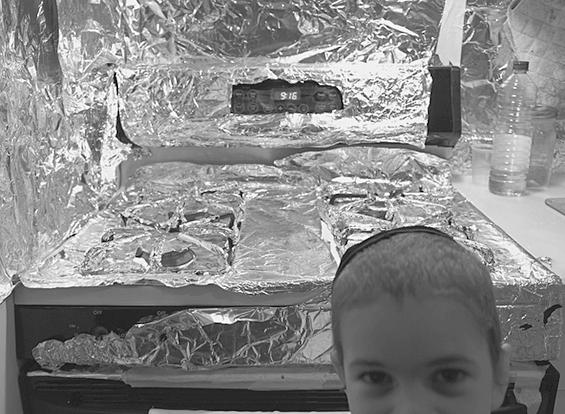
Thinking about this made me curious, so I started with the most reliable source: Biblical law. Halacha dictates that food preparation areas should be cleaned and covered to make sure that no residue of leavened products will contaminate dishes being made for/ during Passover. Hence the deep cleaning and scrubbing and removal of foodstuffs that are not Kosher l’Pesach. In some neighborhoods in Israel, it is not unusual to see folks having their kitchen dishes or utensils cleansed in vats of boiling water or having their heavy pots and pans blow torched in preparation for the holiday. Others pack away their everyday kitchen items and pull out the Passover sets of dishes, pots, pans, appliances and utensils which are only ever used for the holiday.
That is very simple and clear, but it doesn’t answer the question about foil. Maybe I am being a noodnik thinking about such things; Internally I can hear the answer to the question. “Because. Lama? Kach’ha!”
When did good thorough scrubbings of the counters and having a second set of all manner of kitchen tools and pots and pans become not enough, and what in the world did Jews do before foil was so easily available in bulk from Costco? And why? What about times where foil was rationed, hard to come by, or even just too expensive? When did this obsession with wrapping everything in foil begin and who exactly decided on foil being the standard for a KP kitchen. For these questions,
The Jewish Press is looking for a part-time sales person, with the following responsibilities:
• Print and digital sales
• Digital Content development
• Tracking sales goals and reporting results
• as necessary
• Promoting the organization and products
Requirements:
• Previous experience in a sales-related role is
• a plus
• Great customer service skills
• Excellent written and verbal communication
• skills
Interested?
Send your application to Avandekamp@jewish omaha.org today. We cannot wait to meet you!
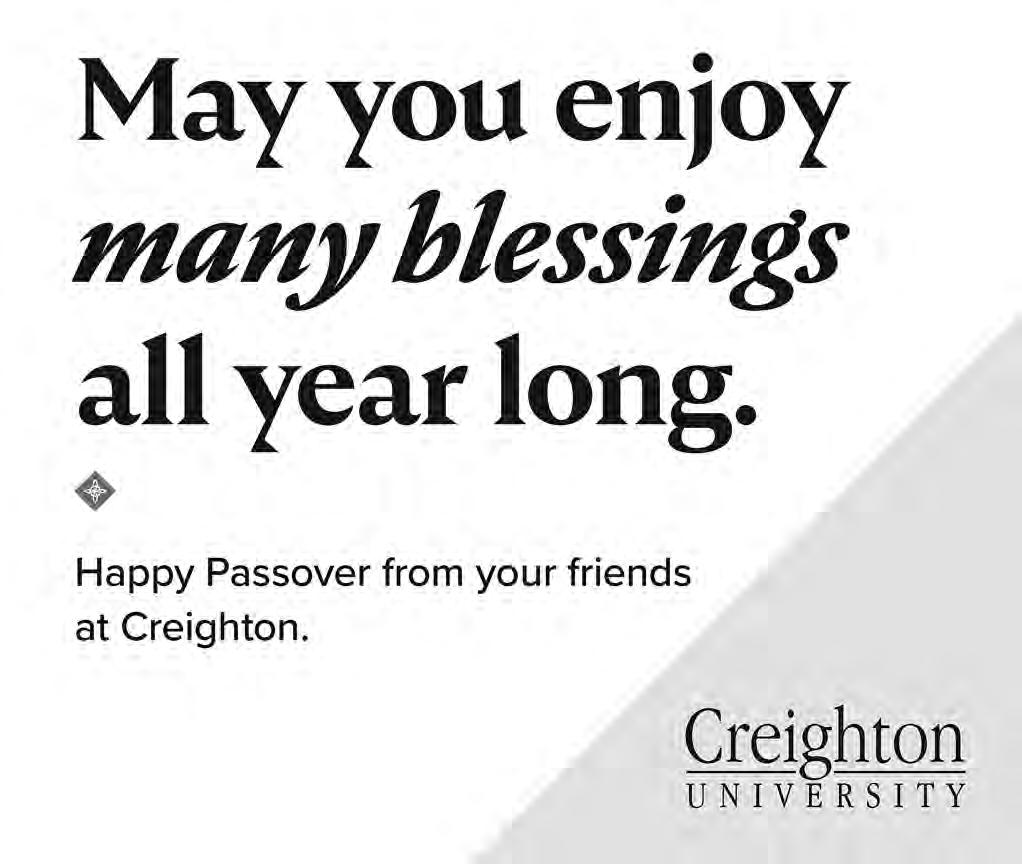

I turned to the internet. sure I’d find the answers.
According to food website Allrecipes.com, ‘Foil’ is a term that applies to a thin sheet made from a malleable metal or alloy; for example, gold and silver foil are best known for their use in jewelry and other forms of art.
“Tin foil dates all the back to the late 18th century and was used for far more than heating food — for instance, it was used as insulation and a protective wrapper for electronics, and dentists used tin foil for fillings. Aluminum foil was developed in Switzerland in the early 1900s as a cheaper more malleable alternative for food packaging and it became commercially available in the early 1910s when it was used to wrap candies such as Toblerone bars and Life Savers. Aluminum foil outperformed tin foil in cost, efficiency, durability, and conductivity, becoming a popular substitute in the following decades. Wartime rations on tin rendered aluminum the standard See Silver linings page B10
Continued from page B6 locales with few, if any, other observant Jews.
To fill that gap, some have turned to Instagram as a vehicle to document both their work and personal lives. And as a younger generation of emissaries begins taking up posts around the world, the way they portray their Jewish outreach cuts across Instagram’s many vibes. Some stick to curating a beautiful photo grid, while others use the platform to broadcast the messier parts of raising a family while running a Jewish community. Some keep their accounts private, viewing social media primarily as a way to reach friends and relatives across the globe.
“There are so many wonderful, beautiful things that social media can be used for,” said Chavie Bruk, the Chabad emissary in Bozeman, Montana. “The more we can talk about the day-to-day struggles and the day-to-day life and the not-glorified part about being a shlucha, I feel like it just creates community and comfort and support.”

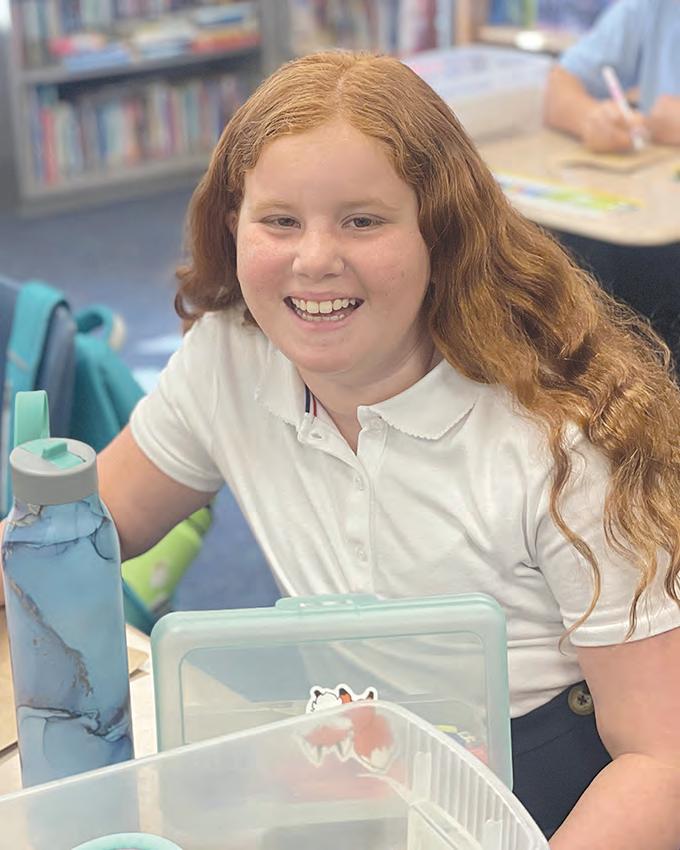
Bruk, 38, has been on Instagram for about 10 years, and started using it regularly about three years ago. Her Instagram is a combination of colorful family photos on the permanent grid, and front-camera facing 24-hour stories where she “doesn’t sugarcoat things” about her life as parent to five adopted children, one of whom is Black and another has a seizure disorder, living in a mostly rural state with only 5,000 Jews.
On Wednesday, she posted a story about a blockage in the septic tank of her house, which is not connected to the city sewer system.
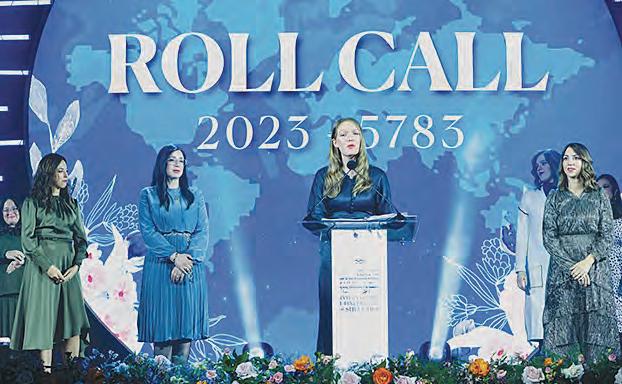

“This has been two days of trying to figure out where the blockage is and they cannot figure it out,” Bruk says in the video. “And we’ve tried everything. Which means we haven’t really been able to use a lot of water in the house. So now it means that we have to get a backhoe. We’re very lucky that our neighbor has one. So Montana!”
Until the blockage is found, Bruk says in the video, her family has to limit their consumption of water.
“I show up how I am,” Bruk told JTA. “Just because you’re doing something really awesome and just because you even love what you’re doing, doesn’t mean it’s not going to be hard.”
She added, “My parents’ generation, there wasn’t room for that. There wasn’t room for expressing hardship. I think [in]




that generation, the shluchos were looked at as superhuman. They just were able to pull it all off without their hair being ruffled... We need to embrace that and really be like, ‘You know what? No. We’re shluchos, we do amazing things. We do things that are superhuman, but we’re not superhuman.’”
meet at the gallery for art-themed social events, networking opportunities and chic Shabbat dinners.
Wirchberg’s Instagram is largely beige, black and white, showing off her modest style of silky skirts layered with chunky knits, oversized blazers and coats, and a variety of wide brim hats, all with a loose silhouette. Some of the photos are shot in Philadelphia and others are taken in Israel, posing in front of the iconic Jerusalem stone. Wircberg also posts stylized pictures of her family life and Jewish ritual, such as shots of her family’s Purim costumes, Hanukkah and pre-Shabbat candle lighting. Some of them are inflected with Chabad teachings, including references to Chaya Mushka Schneerson, the wife of Rabbi Menachem Mendel Schneerson, the late Chabad leader known as the Rebbe.
With 20,000 followers, Wircberg’s friends have asked her why she doesn’t try to monetize the page, though she does include links to donate to local Jewish institutions. “I view my Instagram as part of my shluchos, so I don’t want it to be a place where I’m trying to make money,” she said.
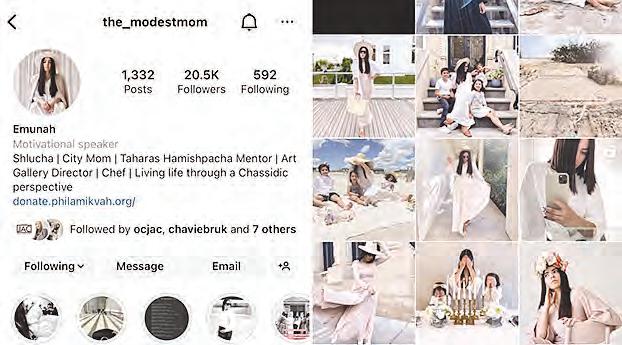
Wircberg also posts videos of her Shabbat cooking — recounting one time when she accidentally used an unkosher mustard for a chicken that she had to throw out — and shares artist-centered events and other activities.
Wirchberg said she appreciates “every opportunity that you have to show your life as a shlucha, Chabad Hasidic woman.” She added, “Showing that to the world and showing that to your followers and connecting with them in that way is actually a really cool, great channel to be able to do that.”

Other shluchos shy away from using Instagram as a public platform. For Esther Hecht, the 26-year-old emissary in Auckland, New Zealand, making phone calls to her friends and family in England and the United States often feels like an impossible task — a distaste that, polling shows, she shares with other members of her generation.
Other emissaries use Instagram as a way to broadcast a fashionable version of themselves in an effort to connect with young Jews. Emunah Wircberg, 31, a shlucha and director of a Philadelphia art gallery called Old City Jewish Arts Center, is also a fashion blogger. Wircberg and her husband Zalman primarily serve Jews in their 20s and 30s, and they usually
Instead, she finds the asynchronous nature of social media to be a helpful alternative when it comes to catching up with people.



At the conference, in between speaking at the podium in front of the nearly 4,000 guests, she found herself handing out her phone to exchange social media handles. Asked why she focuses on the platforms, she said, “It keeps me connected.”

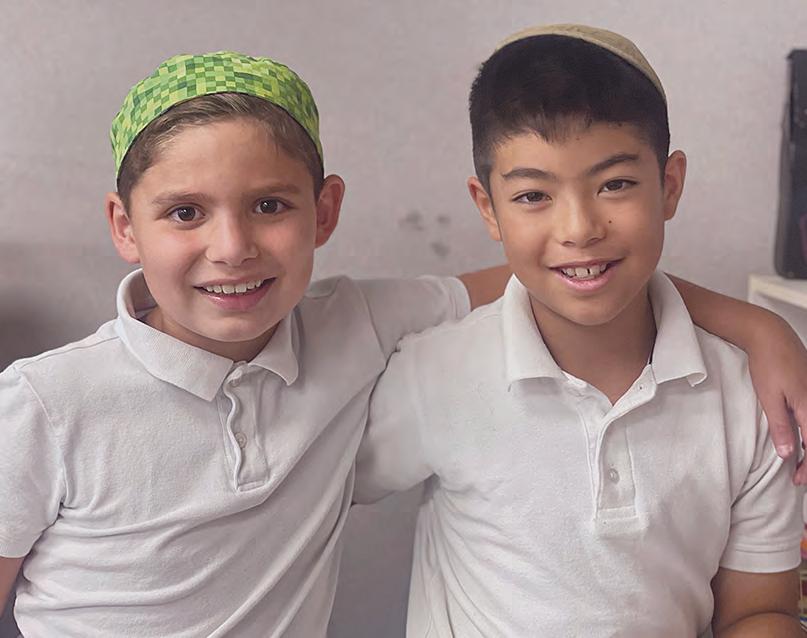
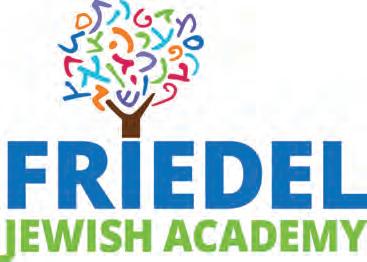

Continued from page B7 for packaging, and after World War II aluminum foil completely superseded tin.”
Knowing this history leads me to believe this custom likely began after the switch from the more expensive tin and only after aluminum foil would have been widely and commercially available and affordable to common people, so this custom had to have originated after WWII.
Rabbi Jack Abramowitz, Educational Correspondent for the website “Jew in the City” said:
“If you visit different houses, you may notice different things covered or uncovered. This is because, not only are there different opinions as to what can and cannot be kashered, but people also own different things. The most obvious thing is probably countertops. Some types of counter, like granite and stainless steel, can be kashered. These, therefore, need not be covered. Other counters might be made of a non-kasherable material and would therefore have to be covered. This might be with foil but it could also be with something else. Some people use contact paper. I have corrugated plastic cut to fit my countertops. Some people have custom countertops that they swap out for Pesach. In the latter case, you wouldn’t even notice that the counters were made “kosher for Passover.” There are other things in the kitchen that one might cover for Pesach. For example, stainless steel sinks can be kashered but porcelain sinks
can’t be. My family has a fitted sink insert, which is like a sink within a sink.
He continues. “Other things that you might see covered include range tops, the grates (upon which the pots rest when on the stove) and the inside of an oven – but you won’t necessarily see them covered everywhere because, again, there are some differences of opinion as to what can be effectively kashered, and the material of which something is made often makes a difference. There are so many variables at play that everyone’s kitchen can look very different. I knew a guy who had a kitchen with a sink and a stove, plus a center island. Come Pesach, special countertops covered his regular sink and stove, while the countertop came off the center island, revealing his Pesach sink and stove. His kitchen looked perfectly normal, just different from its year-round configuration. On the other hand, some people choose to go nuts with the foil. Chometz on Pesach is such a serious matter that many people choose to go beyond the letter of the law; this is considered praiseworthy. One way or the other, you can’t judge a book by its cover and you can’t judge a kitchen by its foil.”
So it appears from this answer, the great Passover kitchen foiling depends largely on the minhag of the family and the directions of a family’s rabbi.
Unable to find information on the origin of the custom, I turned to a more personal source of halachic information, my sister and
brother in-law, a kollel student. “When it comes to Hasidim, it’s not all black and white,” my Hasidic sister jokes. The custom appears to be more of an Ashkenazi origin vs. Sephardic, though there are many Hasidic Jews of Sephardic background that practice in the Ashkenazi custom and vice versa.
“We, personally, don’t cover everything. A thorough cleaning and scrubbing with boiling water is our custom.” My brother-in-law adds that the practice of covering everything in foil is an example of a Chumra; a way to go above and beyond the most basic Halacha to ensure against transgression of law, even if inadvertent. Since Halacha states that everything must be ‘cleaned and covered’, and understanding that Halacha evolves and adapts with technological and societal advances, the basic idea ‘to cover’ was enhanced when materials - such as foil - became a way to ‘cover’ surfaces in a kitchen. Sure you can clean surfaces and ‘cover’ them with boiling water. But to do this and then go a step beyond- in this case, covering them with foil or something
else as illustrated by Rabbi Abramovich-is a Chumra, an extra level of stringency and adherence.
In orthodoxy, you see a lot of examples of Chumra. For example, on Shabbat, there is a requirement to light one candle, yet most light two, or more. To light more than the required one, is Chumra. The candles should be lit 20 minutes before Shabbat, but can be lit earlier, again going above and beyond the basic requirement and doing a little extra, to elevate the ushering in of Shabbat. Halacha is provided as a baseline of law, something that is perhaps easier for most people to follow while Chumra is the ‘extra’ that one may do.
As for who first began the practice of foiling kitchens, that appears to be lost to history but I appreciate knowing a little more behind the rationale of this custom and like the idea of striving to do more than the bare minimum in whatever it is we set out to do.

Wishing you all - whether you cover your kitchen in foil or not - a special, happy and kosher Passover!
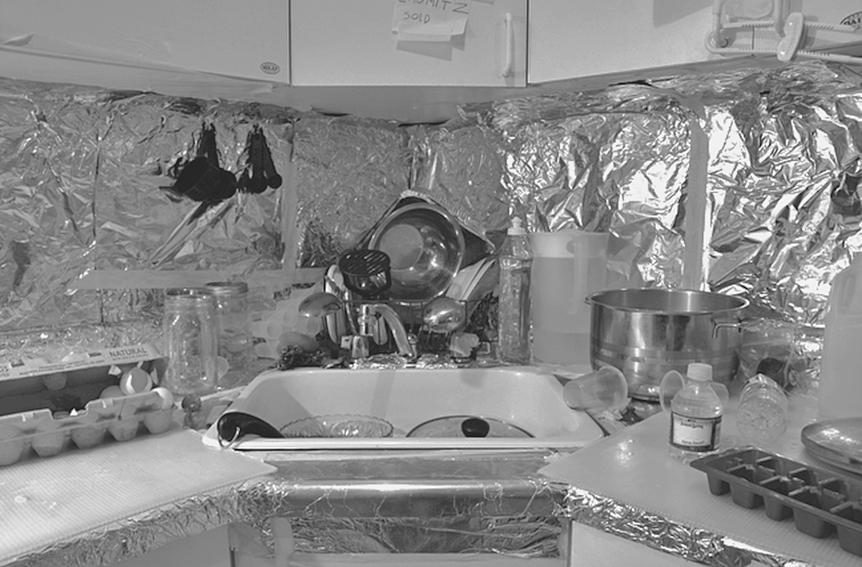

Charoset (pronounced Har-o-set) comes from the Hebrew word for clay. A required food at the Passover seder, Charoset symbolizes the mortar Jewish slaves used between bricks as they toiled to build Egyptian cities.

There are many variations of Charoset which is mostly a function of geography, but all include some combination of fruit, nuts

Ingredients:
Quantities really depend on how big a batch you are making and the size of your food processor.
Dried fruits: Best to use a combination of raisins, dates, dried apricots and/or figs. If very dried out, soak in a little warm water for 5-10 minutes to rehydrate.
Nuts: I like to use almonds but walnuts (or some combination of nuts) can be used.
Tablespoons of applesauce to thin the paste as needed. I add a few pinches of cinnamon to my applesauce, although this is optional.
Tablespoons of sweet wine, or juice (grape or pomegranate work great!) and/or rehydrated fruit water- to thin the paste as needed.

Directions:

In a food processor or blender, pulse together nuts, fruits and applesauce until combined, gently adding wine/juice/fruit water as you grind to help keep it moving as this is
and spices. Ashkenazi recipes usually include chopped apples and tends to be more runny while Sephardic recipes utilize dried fruits like raisins, dates, dried apricots and figs which makes for a thicker, stickier paste. While both tasty, I grew up using this Moroccan recipe and find it much tastier than those which contain fresh fruit. An added bonus of this recipe is that it lasts longer than recipes that call for fresh chopped apples.
Credit: https://www.eatingbirdfood.com/ get-your-charoset/

going to be a very thick and sticky paste. Scrape sides often to ensure everything is getting mixed together.
Continue until the mixture looks like a coarse paste. Remove the charoset from the processor and place it into a bowl or container. Can keep in refrigerator at least a week when stored in airtight container.


GABBY BLAIR
Jewish Press Staff Writer
The Mimouna holiday, brought to Israel by Moroccan Jews, is celebrated immediately after Passover. In the evening, the front door is left open for neighbors and visitors and a feast of fruit, desserts, pastries, hot tea with nana (mint) is set out instead of dinner.
The most anticipated delicacy of the night is Mufleta; a simple, thin crepelike pancake made from water, flour, sugar and oil. The dough is rolled out thinly and quickly cooked in a greased frying pan until it is yellow-brown in color. Mufleta is best eaten warm and spread with honey. (They are also very good with Nutella, silan or jam!).
Note: there are many recipes that call for yeast, but this recipe is the most traditional and simple way to make them. Yeast makes a fluffier thicker pancake and it takes longer. After Passover, nothing tastes better than mufleta and if you have ever been to a mimouna, you know that they cannot be made fast enough!
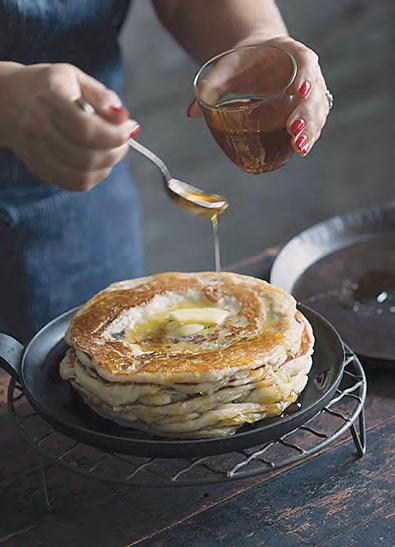
Ingredients:
7 1/2 cups flour
2 tbsp. sugar
2 tsp. salt
3 tbsp. canola or vegetable oil
2 1/2 cups water
Additional oil for coating balls
1/2 cup (1 stick) unsalted butter for topping
1 cup honey for topping
Directions:
In a large bowl, combine flour, sugar and salt. Add oil and water. Mix, then knead about 5 minutes, or until a soft, smooth dough forms. If dough feels dry, add a tiny drop of water. Cover tightly with plastic wrap and let rest 20 minutes. Divide dough into 32 balls. This may be done by forming dough into 2 logs and cutting each into 16 pieces. Pour oil into a small bowl. Roll balls in oil until each is completely coated. Place balls on a flat surface, cover with plastic wrap and let rest 20 minutes.

Heat a large, nonstick frying pan over medium heat. While pan is heating, oil your hands, stretch one dough ball into a circle and, on a flat, oiled surface, continue stretching until pancake is as thin as possible. Don’t worry if holes form — small ones are fine; patch larger ones.

Credit: mondaymorningcookingclub.com
Fry about one minute, or until pancake is barely colored. Flip and fry about another 30 seconds, or until bottom is done. While the pancake fries, form the next ball into a pancake. Continue until all pancakes are done. Spread each pancake generously with honey (or your choice of filling) roll and serve directly to guests, or place on a tray and serve immediately. And don’t worry about leftovers because they won’t last long!
Makes about 32 (7-inch) pancakes.
SYBIL KAPLAN
I grew up when sugary candy in fruit flavors and sponge cake were the only desserts I remember for Passover. Now, there is almost no dessert we can’t make. Here is one.
Sybil Kaplan is a Jerusalem-based journalist, author,
Ingredients:
compiler/contributor/editor of nine kosher cookbooks (working on a 10th) and food writer for North American Jewish publications. She leads walks of the Jewish food market, Machaneh Yehudah, in English since 2009.
This came from a food magazine but I am not sure which one or the year.

3 cups coconut macaroon cookies
1 cup semisweet chopped chocolate
1/3 cup chopped unsweetened chocolate
6 Tbsp. margarine or butter

1/2 cup sugar
3 large eggs
Directions:
Preheat oven to 350 degrees F. Vegetable spray a springform pan.
Process macaroon until fine crumbs form. Sprinkle crumbs in springform pan. Press crumbs to bottom and up sides of pan.
In saucepan, melt chocolates with margarine or butter. Remove from heat and whisk in sugar.
Add eggs and whisk until blended. Pour chocolate mixture into macaroon crust. Bake in preheated 350 degree F. oven
Credit: joyofbaking.com

15 minutes. Cool tart completely. Refrigerate at least 1 hour before serving. Serves 12.

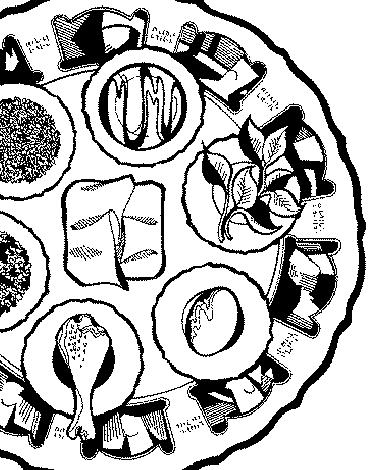

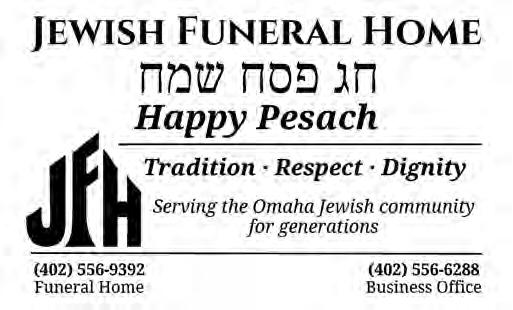


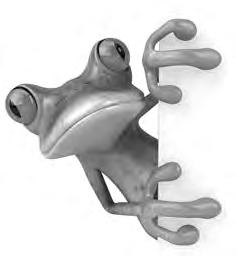


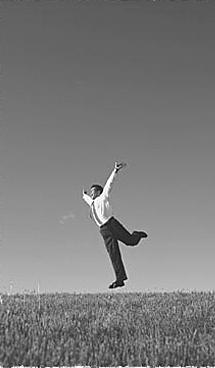
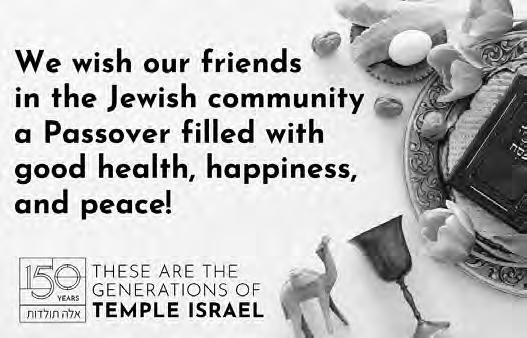

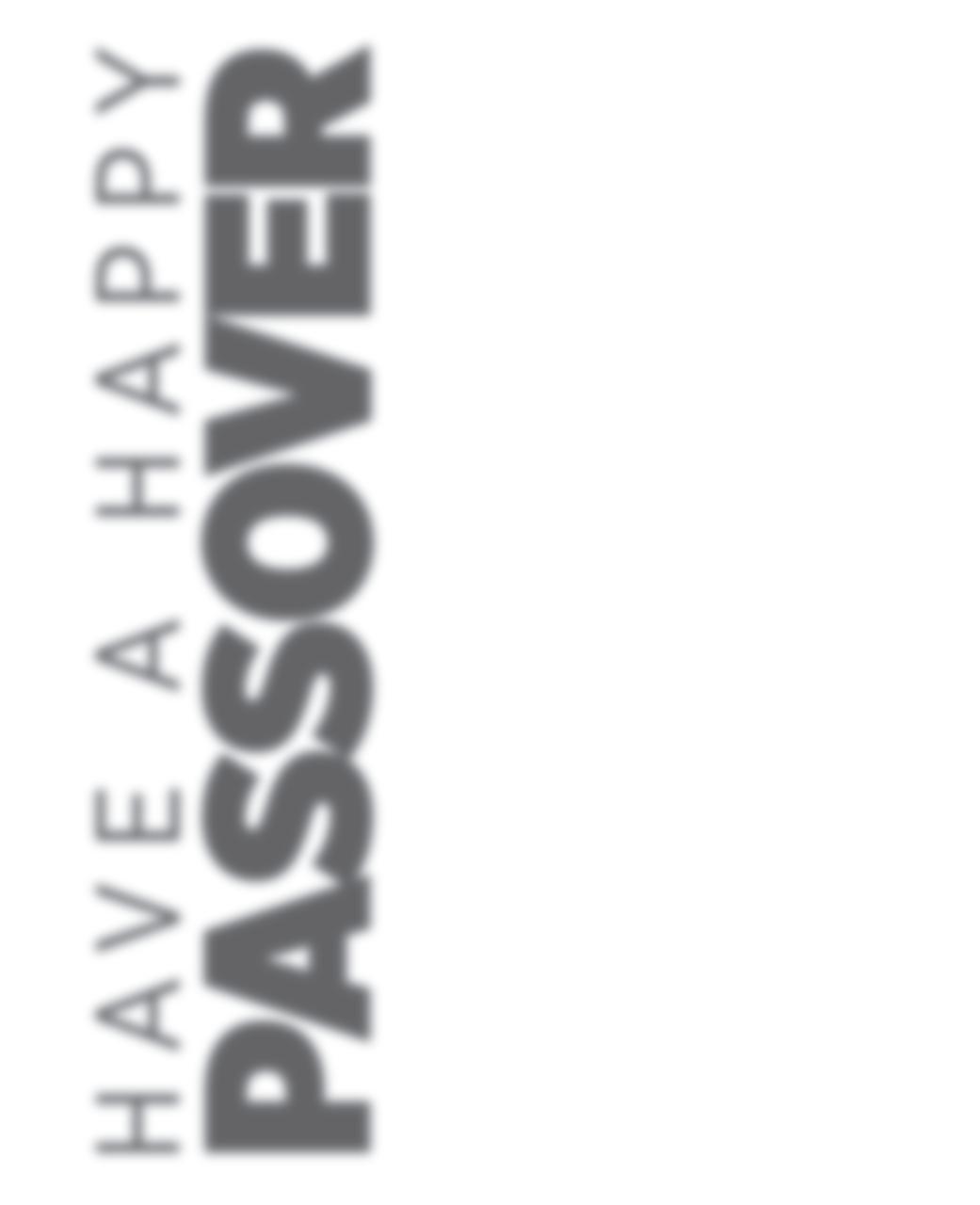








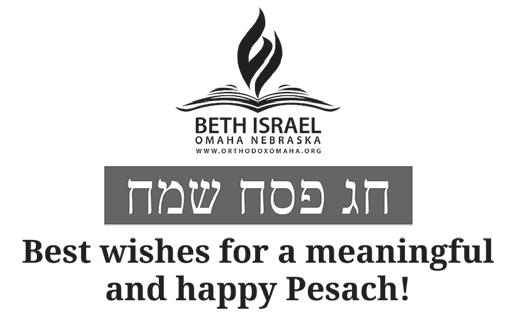
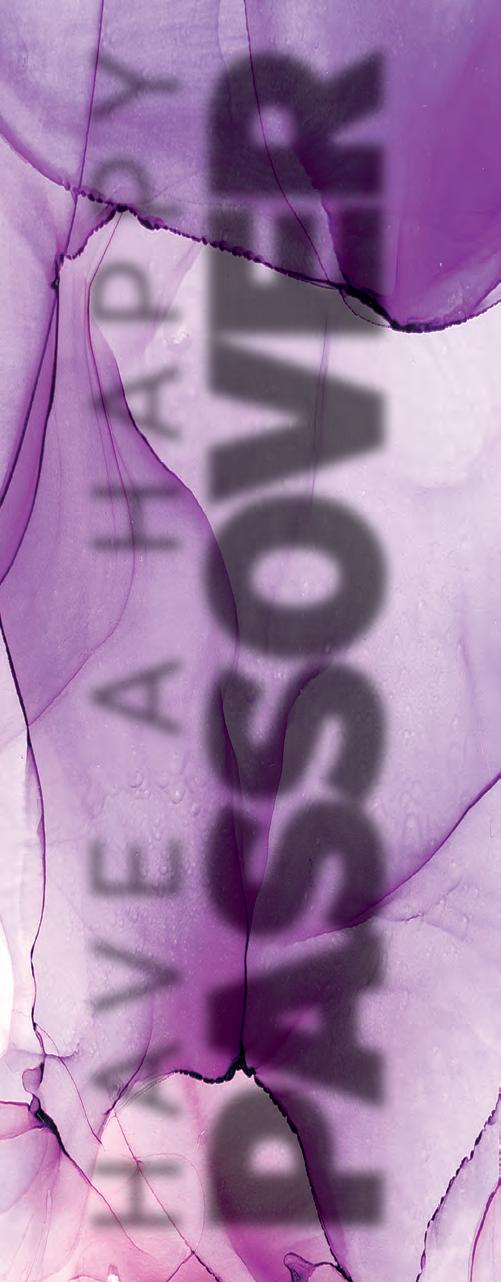


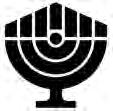
B’NAI ISRAEL SYNAGOGUE
618 Mynster Street
Council Bluffs, IA 51503-0766
712.322.4705
email: CBsynagogue@hotmail.com
BETH EL SYNAGOGUE
Member of United Synagogues of Conservative Judaism
14506 California Street Omaha, NE 68154-1980
402.492.8550 bethel-omaha.org
BETH ISRAEL SYNAGOGUE
Member of Union of Orthodox Jewish Congregations of America 12604 Pacific Street Omaha, NE. 68154
402.556.6288 BethIsrael@OrthodoxOmaha.org
CHABAD HOUSE
An Affiliate of Chabad-Lubavitch
1866 South 120 Street Omaha, NE 68144-1646
402.330.1800 OChabad.com email: chabad@aol.com
LINCOLN JEWISH COMMUNITY: B’NAI JESHURUN
South Street Temple
Union for Reform Judaism
2061 South 20th Street Lincoln, NE 68502-2797
402.435.8004 www.southstreettemple.org
OFFUTT AIR FORCE BASE
Capehart Chapel 2500 Capehart Road Offutt AFB, NE 68123
402.294.6244
email: oafbjsll@icloud.com
ROSE BLUMKIN
JEWISH HOME
323 South 132 Street Omaha, NE 68154
TEMPLE ISRAEL
Union for Reform Judaism (URJ)
13111 Sterling Ridge Drive Omaha, NE 68144-1206 402.556.6536 templeisraelomaha.com
LINCOLN JEWISH COMMUNITY: TIFERETH ISRAEL
Member of United Synagogue of Conservative Judaism
3219 Sheridan Boulevard Lincoln, NE 68502-5236 402.423.8569 tiferethisraellincoln.org
Monthly Speaker Series Service, Friday, April 14, 7:30 p.m. with our guest speaker, Scott Littky. Our service leader is Larry Blass. Everyone is always welcome at B’nai Israel!
For information on COVID-related closures and about our historic synagogue, please contact Howard Kutler at hkutler@hotmail.com or any of our other board members: Renee Corcoran, Scott Friedman, Rick Katelman, Janie Kulakofsky, Howard Kutler, Carole and Wayne Lainof, Beth Moshman, Mary-Beth Muskin, Debbie Salomon and Sissy Silber. Handicap Accessible.
Services conducted by Rabbi Steven Abraham and Hazzan Michael Krausman.
VIRTUAL AND IN-PERSON MINYAN SCHEDULE: Mornings on Sundays, 9:30 a.m.; Mondays and Thursdays 7 a.m.; Evenings on Sunday-Thursday 5:30 p.m.
FRIDAY: Kabbalat Shabbat 6 p.m. at Beth El & Live Stream.
SATURDAY: Shabbat Morning Services, 10 a.m. at Beth El & Live Stream; Jr. Congregation (Grades 3-7), 10 a.m.; Havdalah, 8:25 p.m. Zoom Only.
SUNDAY: BESTT (Grades K-7), 9:30 a.m.; Torah Study, 10 a.m.; Torah Tots, 10 a.m.; Access Period Packing, 11 a.m.; Hebrew Reading, 11 a.m. with Hazzan Krausman.
WEDNESDAY: Shacharit/Siyyum B’khorim (followed by Biur Chometz), 7 a.m. at Beth El & Zoom; Office Closes, 1 p.m.
THURSDAY: Office Closed; Passover Day One Morning Service, 10 a.m. at Beth El & Live Stream; Camel Rides & Petting Zoo, 4 p.m.; Passover Seder, 6 p.m.
FRIDAY-Apr 7: Office Closed; Passover Day Two Morning Service, 10 a.m. at Beth El & Live Stream; Kabbalat Shabbat 6 p.m. at Beth El & Live Stream.
SATURDAY-Apr. 8: Passover/Shabbat Morning Services, 10 a.m. and Yizkor will be said at Beth El & Live Stream; Havdalah, 8:30 p.m. Zoom Only.
Please visit bethel-omaha.org for additional information and service links.
BETH ISRAEL
FRIDAY: Nach Yomi, 6:45 a.m.; Shacharit, 7 a.m.; Mincha/Kabbalat Shabbat/Candlelighting, 7:30 p.m.
SATURDAY: Shabbat Kollel, 8:30 a.m.; Shacharit 9 a.m.; Tot Shabbat, 10:45 a.m.; Mincha, 7:10 p.m.; Laws of Shabbos/Kids Activity 7:50 p.m.; Havdalah, 8:31 p.m.
SUNDAY: Shacharit, 9 a.m.; Tot Pesach, 10:30 a.m.; Mincha/Ma’ariv 7:40 p.m.
MONDAY: Nach Yomi, 6:45 a.m.; Shacharit, 7 a.m.; Mincha/Ma’ariv, 7:40 p.m.
TUESDAY: Nach Yomi, 6:45 a.m.; Shacharit, 7 a.m.; Parsha Class for 3rd-6th Grades, 2:45 p.m. at Friedel; Mincha/Ma’ariv, 7:30 p.m.; Bedikat Chametz, 8:34 p.m.
WEDNESDAY: Erev Passover — Nach Yomi, 6:45 a.m.; Shacharit, 7 a.m.; Fast of the Firstborn Siyum, 7:40 a.m.; Latest time to eat chometz, 10:50 a.m.; Chometz burning, 11 a.m.-noon at Beth Israel; Last
time to dispose of chometz, 12:09 p.m.; Mincha/ Ma’ariv, 7:35 p.m.; Candlelighting, 8:35 p.m.; Begin Seder no earlier than 8:35 p.m.
THURSDAY: Passover First Day; Shacharit, 9 a.m.; Sermon by Rabbi Dr. Shlomo Abramovich, 10:30 a.m.; Kids Davening 10:30 a.m.; Mincha/Ma’ariv 7:35 p.m.; Candlelighting 8:36 p.m.; Begin Seder no earlier than 8:36 p.m.
FRIDAY-Apr 7: Passover Second Day; Shacharit, 9 a.m.; Kids Davening, 10:30 a.m.; Mincha/Kabbalat Shabbat/Candlelighting, 7:35 p.m.
SATURDAY-Apr. 8: Passover — Shabbat Kollel, 8:30 a.m.; Shacharit, 9 a.m.; Tot Shabbat, 10:45 a.m.; Youth Class 6:30 p.m.; Mincha 7:35 p.m.; Havdalah, 8:36 p.m.
Please visit orthodoxomaha.org for additional information and Zoom service links.
CHABAD HOUSE
All services are in-person. All classes are being offered in-person and via Zoom (ochabad.com/academy). For more information or to request help, please visit www.ochabad.com or call the office at 402.330.1800.
FRIDAY: Shacharit, 8 a.m.; Inspirational Lechayim, 5:45 p.m. with Rabbi and friends: ochabad.com/ Lechayim; Candlelighting, 7:22 p.m.
SATURDAY: Shacharit, 9:30 a.m.; followed by Kiddush and Cholent; Shabbat Ends, 8:30 p.m.
SUNDAY: Sunday Morning Wraps: Video Presentation, 9-9:30 a.m. and Breakfast, 9:45 a.m.
MONDAY: Shacharit 8 a.m.; Personal Parsha, 9:30 a.m.; Intermediate Biblical Hebrew Grammar, 10:30 a.m. with Prof. David Cohen; Parsha Reading, 6 p.m. with Prof. David Cohen.
TUESDAY: Shacharit, 8 a.m.; Introductory Biblical Hebrew Grammar, 6 p.m. with Prof. David Cohen.
WEDNESDAY: Shacharit 8 a.m.; Tanya Class, 9:30 a.m.; Introductory Biblical Hebrew Grammar, 10:30 a.m. with Prof. David Cohen; Parsha Reading, 11:30 a.m. with Prof. David Cohen; Pesach Seder, 7:30 p.m. at UNL, 325 Louise Pound Hall, Lincoln. RSVP at ocha bad.com/seder
THURSDAY: Shacharit, 10 a.m. followed by Kiddush Lunch.
FRIDAY-Apr 7: Shacharit 8 a.m.; Inspirational Lechayim, 5:45 p.m. with Rabbi and friends: ocha bad.com/Lechayim; Candlelighting, 7:37 p.m.
SATURDAY-Apr. 8: Shacharit, 9:30 a.m.; One-Hour Service, 11 a.m. at Chabad. Go to ochabad.com/one hour for more info; Kiddush Lunch, noon; Shabbat Ends, 8:38 p.m.
LINCOLN JEWISH COMMUNITY: B’NAI JESHURUN & TIFERETH ISRAEL
Services facilitated by Rabbi Alex Felch. Note: Some of our services, but not all, are now being offered in person.
FRIDAY: Kabbalat Shabbat Service with Rabbi Alex and music by Nathaniel and Steve Kaup, 6:30 p.m. at SST; Oneg host: Amy Muriello; Shabbat Candlelighting, 7:32 p.m.
SATURDAY: Shabbat Morning Service, 9:30 a.m. with Rabbi Alex at TI; Torah Study, noon on Parashat
ANDREW LAPIN
JTA
Responding to a recent rise in neo-Nazi activity in his state, a Jewish lawmaker in Florida is trying to outlaw displays of “religious or ethnic animus” on private property in his state.
H.B. 269 takes aim at a variety of activities that neo-Nazi groups in the state have undertaken, from distributing flyers with hate speech to broadcasting intimidating messages in public places.
Those groups’ activity has been rising in Florida for several years, according to a 2022 report by the Anti-Defamation League titled “Hate in the Sunshine State.” The report was published before the founder of the Goyim Defense League, which distributes antisemitic literature in public places and to private homes, relocated to Florida.
“We have actual Nazis who have proudly taken up residence in Florida,” the bill’s co-author, Rep Randy Fine, recently told the Algemeiner. “The things that they are doing, all of which I find disgusting, are reprehensible, and we are going to
make them felonies.”
Over the last couple of years, antisemitic groups have rallied outside Walt Disney World and a Chabad house in Orlando; displayed messages of Jew-hatred on a Jacksonville stadium during a highly watched college football game; and visited Florida universities trying to provoke students with hateful messaging.
Many of those activities have been fueled by members of the Goyim Defense League, whose founder specifically said he expected Florida to be more hospitable to him and his worldview when he moved his operations there from California.
Now, the Goyim Defense League’s signature tactic would transform into a felony under H.B. 269, which has bipartisan support and this week advanced to the legislature’s Judiciary Committee.
The bill would prohibit Floridians “from distributing onto private residential property any material that evidences religious or ethnic animus for purpose of intimidating or threatening [the] owner or resident.” It would also prohibit harassing or intim-
Tzav; Havdalah 8:33 p.m.
SUNDAY: LJCS Classes, 9:30 a.m.; LJCS Matzah Factory, 10:30 a.m.; Men’s Bike/Coffee Group continues to meet during the winter months, 10:30 a.m. at Rock-N-Joe, just off of 84th and Glynoaks. For more information or questions please email Al Weiss at alb ertw801@gmail.com; Pickleball, 3-5 p.m. at TI. For more information please contact Miriam Wallick by text message 402.470.2393 or email at Miriam 57@aol.com. Wear comfortable clothes and appropriate footwear; There will be no pickleball on April 2 or April 9, due to prep for and celebration of Passover!
MONDAY: Mutual Review Committee Meeting, 7 p.m. at SST Social Hall.
TUESDAY: Search for Chometz.
WEDNESDAY: Ta’anit Bechorot; Erev Passover; No LJCS Classes; Synagogue Offices Closed; First Seder; Fast begins, 5:40 a.m.; Candlelighting for Pesach, 7:37 p.m.
THURSDAY: Passover One; Community Second Seder 6 p.m. at TI; Pesach Candlelighting, 8:38 p.m.
FRIDAY-Apr 7: Passover Two; Kabbalat Shabbat Service with Rabbi Alex and music by Nathaniel and Steve Kaup, 6:30 p.m. at SST; Oneg host: TBD; Shabbat Candlelighting, 7:39 p.m.
SATURDAY-Apr. 8: Passover Three; Shabbat Morning Service 9:30 a.m. with Rabbi Alex at TI; Havdalah 8:41 p.m.
OFFUTT AIR FORCE BASE
FRIDAYS: Virtual Shabbat Service, 7:30 p.m. every first and third of the month at Capehart Chapel. Contact TSgt Jason Rife at OAFBJSLL@icloud.com for more information.
ROSE BLUMKIN JEWISH HOME
The Rose Blumkin Jewish Home’s service is currently closed to visitors.
TEMPLE ISRAEL
In-person and virtual services conducted by Rabbi Batsheva Appel, Rabbi Deana Sussman Berezin, and Cantor Joanna Alexander
FRIDAY: Drop in Mah Jongg, 9-11 a.m. In-Person; Shabbat Shira Service, 6 p.m. In-Person & Zoom; Confirmation Class and Dinner, 6 p.m.
SATURDAY: Torah Study, 9:15 a.m. In-Person & Zoom.
SUNDAY: No Youth Learning.
WEDNESDAY: Yarn It, 9 a.m.-noon In-Person; No Youth Learning.
THURSDAY: Temple Israel Office Closed; Passover Service 10:30 a.m.; Passover Community Seder, 6 p.m.
FRIDAY-Apr 7: Drop in Mah Jongg, 9-11 a.m. InPerson; Shabbat B’yachad Service, 6 p.m. In-Person & Zoom.
SATURDAY-Apr. 8: Torah Study 9:15 a.m. In-Person & Zoom; Shabbat Chol Ha’Mo’eid Passover Service, 10:30 a.m. In-Person & Zoom. Please visit templeisraelomaha.com for additional information and Zoom service links.
idating people “wearing or displaying of any indicia relating to any religious or ethnic heritage.”
Other sections of the bill describe activities that the state’s neo-Nazi groups have undertaken in recent months, including displaying messages of ethnic intimidation on sports stadiums and other buildings, and entering college campuses in order to intimidate. The bill would classify such activities as third-degree felonies, with violations carrying prison terms of up to five years.
Some of the bill’s targets appear to be mobilizing against it. A month-old online petition opposing H.B. 269 has attracted more than 2,500 signatures, and its comments are filled with antisemitic rhetoric. One commenter decries “the Jewish assault on freedom of speech”; another, identifying themselves as the American airplane pilot and Nazi sympathizer “Charles Lindbergh,” wrote, “No group, no matter how small their hats are, has the right to tell us what we can or can’t say,” an apparent reference to kippahs.
This story was edited for length. read more at www.omahajewishpress.com.
War Veterans ........................................... B13
Kaiman, Barry and Toni Victor ......................... A6
Kugler Vision ............................................................. A4
League Offering Volunteers for the Elderly ..................................................... B13
Lerner Company .................................................... A13
Lion’s Automotive Upholstery ........................ A6
Louie M’s Burger Lust .......................................... B12
Malashock Jewelry ................................................ A12
McGill, Gotsdiner, Workman & Lepp, PC, LLO. .................................................... A14
Mid-City Jewelry & Loan .................................... A9
Nature Conservancy Nebraska ....................... B3
Nebraska Furniture Mart ................................... A10
Nebraska Jewish Historical Society ............. B13
ADVERTISER PAGE
Nebraska Press Statewide Classifieds ....... B15



Newman Family ...................................................... B4
Omaha Community Playhouse ...................... A5
Omaha Compound Company ........................ A5
Omaha Trans Video ............................................... B11
One Pacific Place-Broadmoor ......................... A9
ONYX Automotive ................................................. A7
Pulverente Monument Co. ................................ B15
Refresh Cleaning Services, LLCJudy Bunkers ....................................................... B3
Ricks, Marty & Iris .................................................... B3
Rose Blumkin Jewish Home ............................. A8
Rotella’s Italian Bakery ........................................ B12
Schwalb Realty ........................................................ B3
Seldin Company ...................................................... A11
Sol’s Jewelry & Loan ............................................ A14
Staenberg Family Foundation ....................... A16
Star Deli/Star Catering ........................................ B13
Swartzbaugh Farber ............................................. B4
Temple Israel ............................................................. B13
The Rooferees John Higgins
Weatherguard ..................................................... A6
Tritz Plumbing .......................................................... B15


University of Nebraska Omaha Natan & Hannah Schwalb Center for Israel & Jewish Studies .................................................................... A13
Vann Realty ............................................................... A14
Village Pointe Pediatrics .................................... A15
Wiesman Development .................................... A14
Zio’s Pizza ................................................................... B11
HELLO NEBRASKA! Introducing www.nepublicnotices.com, a new public notice website presented as a public service by all Nebraska newspapers. Free access, fully searchable – because democracy depends upon open government and your right to know.
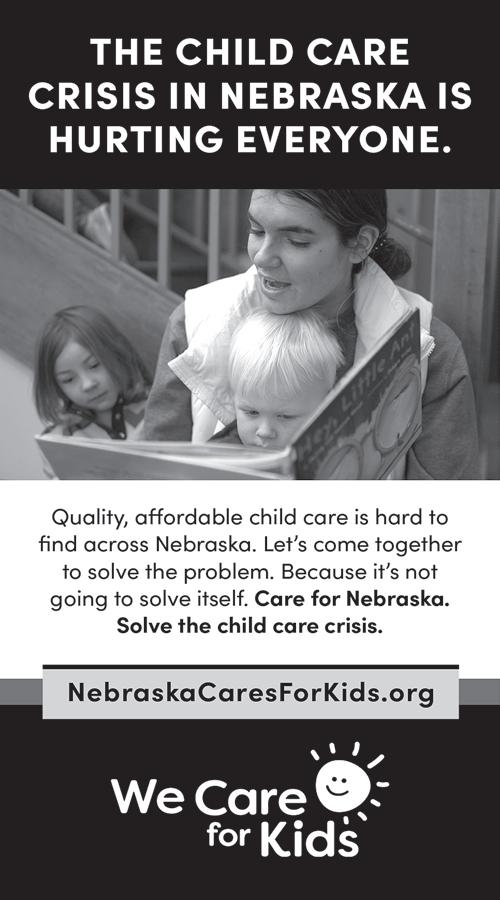
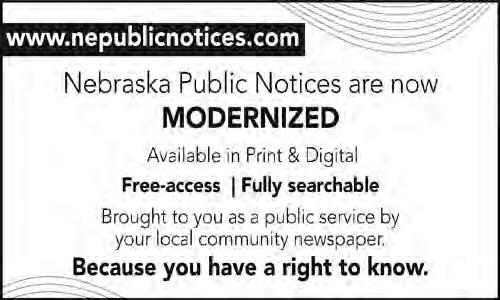
CLASSIFIED ADVERTISING works! Place your 25 word ad into thousands of Nebraska homes for $225. Contact The Jewish Press or call 1-800-369-2850.

AFFORDABLE PRESS Release service. Send your message to 155 newspapers across Nebraska for one low price! Call 1-800369-2850 or www.nebpress.com for more details.
FOR SALE
USE ItchNoMore® shampoo on dogs & cats to relieve secondary dermatitis, treat yeast infections, & eliminate doggy odor. At Tractor Supply® (www.fleabeacon.com).
FOR SALE - INTERNET
FREE HIGH speed internet for those that qualify. Government program for recipients of select programs incl. Medicaid, SNAP, Housing Assistance, WIC, Veterans Pension, Survivor Benefits, Lifeline, Tribal. 15 GB internet service. Bonus offer: Android tablet FREE with one-time $20 copay. Free shipping & handling. Call Maxsip Telecom today! 1-855-646-1256.

FOR SALE - SENIORS
PORTABLE OXYGEN Concentrator? May be covered by Medicare! Reclaim independence and mobility with the compact design and long-lasting battery of Inogen One. Free information kit! Call 855-385-3580.
STROKE AND Cardiovascular disease are leading causes of death, according to the American Heart Association. Screenings can provide peace of mind or early detection! Contact Life Line Screening to schedule your screening. Special offer - 5 screenings for just $149. Call 1-844-893-8016.
FOR SALE - SERVICES
ELIMINATE GUTTER cleaning forever! LeafFilter, the most advanced debris-blocking gutter protection. Schedule a FREE LeafFilter estimate today. 20% off Entire Purchase. Plus 10% Senior & Military Discounts. Call 1-855-671-2859.
FOR SALE - UTILITIES
THE GENERAC PWRcell, a solar plus battery storage system. Save money, reduce your reliance on the grid, prepare for power outages and power your home. Full installation services available. $0 Down Financing Option. Request a Free, no obligation, quote today. Call 1-833-513-0190.
HOME REPAIR
DOES YOUR basement or crawl space need some attention? Call Thrasher Foundation Repair! A permanent solution for waterproofing, failing foundations, sinking concrete and nasty crawl spaces. FREE Inspection & Same Day Estimate. $250 off ANY project with code GET250. Call 1-844-958-3431.
HOME SERVICES
REPLACE YOUR roof with the best looking and longest lasting material steel from Erie Metal Roofs! Three styles and multiple colors available. Guaranteed to last a lifetime! Limited Time Offer - $500 Discount + Additional 10% off install (for military, health workers & 1st responders.) Call Erie Metal Roofs: 1-888-316-7713.

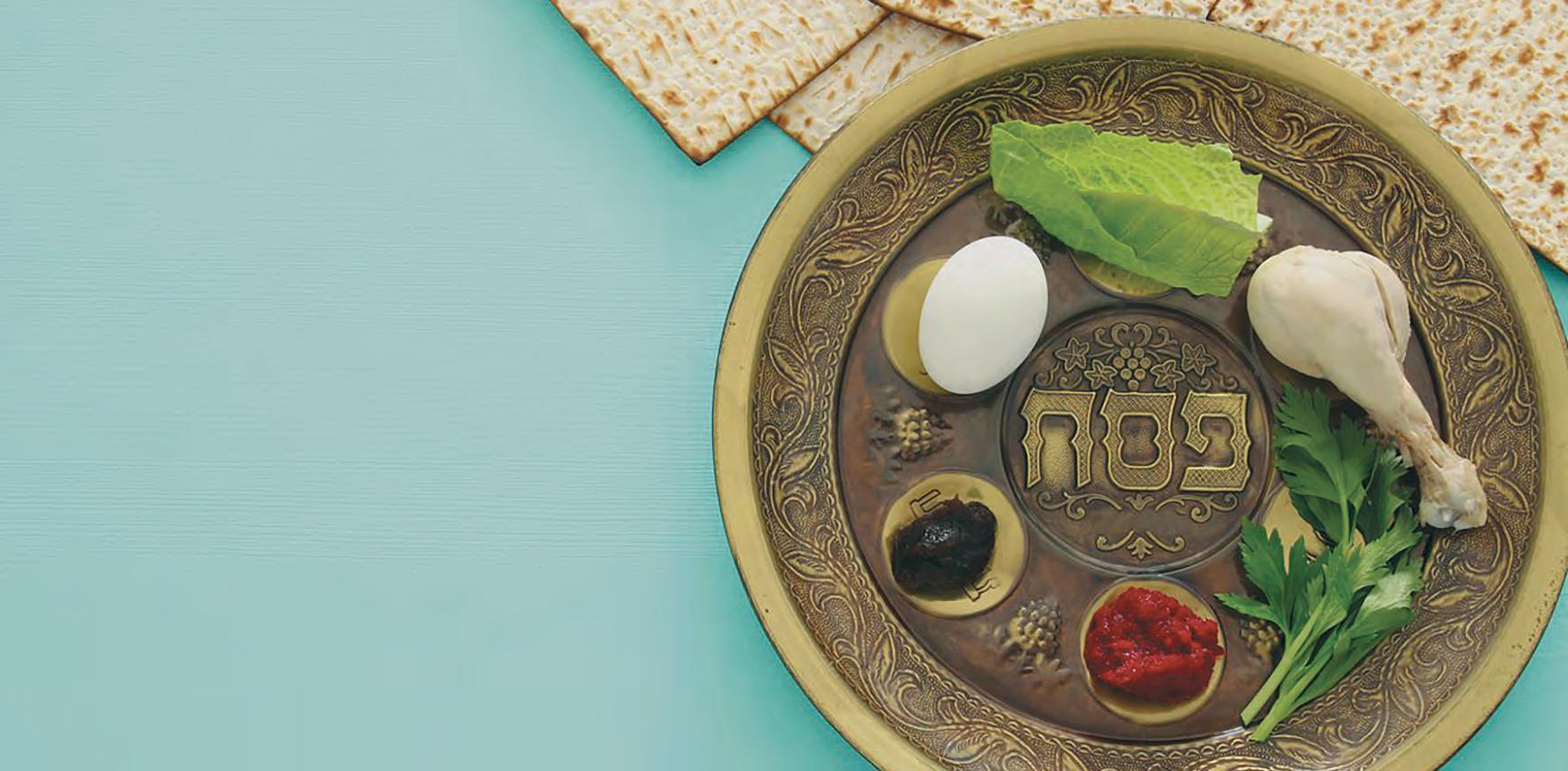
Rabbi Steven Abraham
Michael & Sheri Abramson
Michael Albert*
Anonymous (40)
Ansari Family
Joyce Ashley
John Atherton & Marti Rosen-Atherton
Elyce* & Aryeh Azriel
Bob Belgrade
Sandra Belgrade*
Mark & Jill Belmont
Harry Berman
Marilyn F. Berman
Jake & Susan Besser
Bonnie Rae Bloch
Steven R. Bloch
Becki Brenner
Beth Brodkey
Bruce H. Brodkey & Marcia A. Hoffman
Ron Brodkey*
Miriam Brooks
Carrie & Josh Brown
Elliot Brown*
Beth Cohen
David & Karla Cohen
Marla & Bob Cohen
Drs. Michael & Karen Cohen & Family
Daniel Cohn
Pam Cohn
Justin Cooper Ronald & Cheryl Cooper
Mickey & Fran Coren
Jerry* & Janey Dann
Hal & Mary Daub
Arthur L. Davidson*
Betsy G. Davidson
Larry & Hanna DeBruin
Rabbi Ari Dembitzer
Deborah Denenberg
Norman & Eunice* Denenberg
Steven Denenberg
Tippi Denenberg
JohnCarl Denkovich
Pam & Dennis DePorte
Beth Seldin Dotan

Eric Dunning
Toba Cohen-Dunning
Penny Krasne Endelman
Alex Epstein
Harold Epstein*
Howard & Sharon Epstein
Irving Epstein
Lindsay Epstein
Lisa & Gary Epstein
Mel Epstein
Paul &
Mark Goldstrom Alan Goodman*
& Shirley Goodman Andie Gordman & Dan Fitzgerald Jay & Allison Gordman Kip & Bridget Gordman Linda & Jerry Gordman Steven Gottlieb Andy & Carole Greenberg
H.* & Caryl B.* Greenberg Paul G. Greenberg(in loving memory of Yvonne, Walter & Brant Greenberg) Bennett & Robin Greenspan
Joshua & Amanda Gurock
Mace Hack Mendy & Michael Halsted
Andrea & Marc Hamburg
M'Lee Hasslinger
Bonnie Kuklin Horwich
Jon Jabenis
Randi Friedel Jablin
Joan Sandler Jacobson
Richard Jacobson
Gary & Karen Javitch
Patrick Jensen
Sylvia Jess*
Edward & Anne Joseph & Family
Debbi Josephson
Frances Juro
Richard Juro
Becky Kahn
Marcel & Ilse* Kahn
Mr. & Mrs. Stephen Kaniewski
Gary* & Sally Kaplan
Myron Kaplan
Donald S.* & Delores Klein
Marsha A. Kleinberg
Milton M. Kleinberg
Sara & Ari Kohen
David Kohll
Janet Kohll
Howard M. & Sharon Kooper
Shane & David Kotok
Jack Kozlen
Alan & Deborah Kricsfeld
Janie Fox Kulakofsky
David & Debi Kutler
Howard & Nancy Kutler
Stuart & Sandy Kutler
Carole A. Lainof
K. Wayne & Carole A. Lainof
Randal Langdon
Sharon Comisar-Langdon
Barbara Lashinsky
Joanie Lehr
Sandy & John Lehr
Susan Lehr
Mike & Bobbi Leibowitz
Paula A. Lenz
Vincent P. Lenz
Steve & Bonnie Levinger
Rochelle Lewis
David Lieberman
Felicia & Scott Littky
Mario Lopez
Steve* & Thelma* Lustgarten
Trenton B. Magid
Diane* & Larry Malashock
Dr. Edward* & Sally* Malashock
Jody & Neal Malashock
Robert Y. Meyerson, M.D.
Troy & Jamie Meyerson
Lois Milder
Dr. Sidney Mirvish*
Stanley & Evelyn Mitchell
Eli* & Ann* Modenstein
Ann Moskovits*
John Mosow & Ellin Siegel
Janie & Allan Murow
Mary-Beth & Bruce Muskin
Michael Muskin
Amy Nachman
Gary Nachman
Allison Newfeld
Murray & Sharee Newman
Dr. Patricia Newman
Phyllis & E. R. “Bob” Newman
Allan S. Noddle
Patty Nogg
Steve Nogg
Susan R. Norton
Andrea Olson
Alan S. Parsow
Carol S. Parsow
Margo Frohman Parsow
Robert* & Betty Perelman
Vicki Perlmeter
Bonnie Pfrenger
Eric & Julie Phillips
Gilda Pieck*
Marcia & Steve* Pitlor
James & Susan Polack
Karen Pollak
Oliver Pollak
Alan E. Potash
Bruce Potash
& Sarah Gilbert David Gilinsky & Katherine Finnegan
Giller
& Sherman* Golbitz
Goldstein
E. Goldstein Gary & Barbara Goldstein
Goldstein
Goldstein Dora Goldstrom
Russ Kaplan
Beatrice Karp*
Gloria C. Kaslow
Howard J. Kaslow
Cookie Katskee
Julee Katzman
Les & Helen Kay
Jeff & Sharon Kirshenbaum
Joe Kirshenbaum*
Kevee Kirshenbaum*
Stanley* & Barbara* Malashock
Chaya Sarah Malkah
Dan Marburg
Joan Krasne Marcus
Lisa Marcus
Julie & Mark Martin
Bruce Meyers
Jon & Denise Meyers
Sue Meyers*
Tina & Joe Meyers
Linda Neumann-Potash
Paul Rabinovitz
David & Gretchen Radler
Gail Goldstein Raznick
Mary & Joel Rich
Philip & Diane Rich
Marty & Iris Ricks
Ari Riekes
Carl Riekes
Margo Riekes
Steven J. Riekes
Zoë Riekes
Bob Rifkin
Jane & Harlan Rips
Stuart Richard Rochman*
Jonathan Rockman
Stacey Rockman
Silvia G. Roffman
Debbie & Lloyd Roitstein
Susan Rothholz*
Lynne-Carol Saltzman
Rosalie* & Milton* Saylan
Caryn & Marc Scheer
Dr. Joel & Nancy Schlessinger
Carol* & Ed Schneider
Beth and Harley Schrager
Jeffrey Schrager & Anne York Family
Foundation
Natan & Hannah Schwalb
Jeff Schweid
Aviva Segall & Patrick McNamara
Ted* & Sarah* Seldin
Stephanie Shakhirev
Mr. and Mrs. Ben Shapiro
Nate A. Shapiro
Sherry & Larry Shapiro
Len Burrell & Cantor Wendy Shermet
Melissa & Michael Shrago
Aveva & Martin Shukert
Gary Shyken
Liat Shyken
Paul Shyken
Susann Shyken
Michael & Andrea Siegel
Sissy Katelman Silber
Esther Silver
Denise C. Silverman
Stanley* & Norma* Silverman
Gerald & Judy Simons
Harriet Singer*
Nancy B. Skid
Janet & Jerry Slusky
Jeff & Debi Smedlund
Dorothy Spizman
684 commitments with an estimated value of $25,484,592.

And its Agencies: Jewish Community Center, Jewish Press, Jewish Community Relations Committee, and Jewish Social Services including Jewish Family Service, Jewish Senior Outreach and Rose Blumkin Jewish Home.

Help secure the financial future of Omaha’s Jewish community through the LIFE & LEGACY™ initiative. LIFE & LEGACY is a collaboration between the Jewish Federation of Omaha Foundation, the Harold Grinspoon Foundation, and our local Jewish partner organizations: The Jewish Federation of Omaha and its Agencies, B’nai Isarel Synagogue, Beth El Synagogue, Beth Israel Synagogue, Temple Israel, Chabad Nebraska, Friedel Jewish Academy, Institute for Holocaust Education, and Nebraska Jewish Historical Society.
Michael Staenberg
Shira Steinberg
Carolyn “Rocky” Stern
Rabbi A. Brian Stoller
David Keiser & Lillian Keiser Stoms
Foundation
Louri Sullivan
Barry H. Summer
Fred Tichauer
Marilyn & Steven Tipp
Basya Tsed
R. Thomas Vann
Irving & Gail Veitzer
Norman & Joodi* Veitzer
John & Donna Walter
Jim & Esther* Wax
Steve & Joye Wees
Aaron Weiner & Therese Vaughn
Harry M. Weiner
Kathy Weiner
Rabbi Yaakov & Ilana Weiss
Benjamin & Anna* Wiesman Family
Susan Fellman Witkowski
Nancy L. Wolf
Robert Yaffe
Anna Yuz-Mosenkis
Jeff Zacharia
Renee Zacharia
Steve & Kathy Zalkin
Charlotte* & Morley* Zipursky
Sally & Jim Zipursky
Deborah & Speedy (Dr. Eugene)
Zweiback
Rosie Zweiback & Mace Hack
Bolded – This means individual(s) have indicated to the Foundation they have formalized their commitment legally. If you have formalized, and are not bolded please contact Jay Katelman at jkatelman @jewishomaha.org or at 402.334.6461 to correct.
*Of blessed memory Names as of Jan. 31, 2023
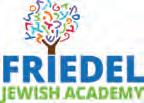
We all strive to leave the world a better place. Through our children, our good deeds, and our generosity. Happy Passover with gratitude to our LIFE&LEGACY donors.Credit: Getty Images